RIPON R

$259,000 National Science Foundation Grant
Praising Ripon’s values


$259,000 National Science Foundation Grant
Praising Ripon’s values
Spring 2024 VOLUME 57, ISSUE No. 1

Ripon Magazine (ISSN 1058-1855) is published twice annually by Ripon College.
Postage paid at Ripon, Wisconsin. Copyright © 2024 Ripon College
postmaster: Send address changes to Ripon Magazine, 300 W. Seward St., Ripon, WI 54971
Editor: Jaye Alderson, email: AldersonJ@ripon.edu, phone: 920-748-8364
Editorial Assistants: Ric Damm, Ian Stepleton ’98
Design: Ariel Esser; Mackenzie Schmitt
Photography: Ric Damm
Office of Constituent Engagement: 920-748-8126
Ripon College prepares students of diverse interests for lives of productive, socially responsible citizenship.
Our liberal arts and sciences curriculum and residential campus create an intimate learning community in which students experience a richly personalized education.
Please send career updates or changes of address to alumni@ripon.edu. ripon.edu

The Forever Ripon capital campaign, the largest in school history, already has surpassed its initial goal 18 months ahead of schedule. The College now is pursuing an ambitious extended goal of $100,000.
The new Hopp Stadium, Ripon’s first on-campus stadium, opened on a high Oct. 21, with a game by the women’s soccer team in the morning and a stunning victory for the football team in the afternoon.
An enduring correspondence with famed author Judy Blume helped Karen McCulloch Chilstrom ’92 when she desperately needed emotional support, and now Chilstrom is reaching out to help others in need.
New research on rare sugars by Associate Professor of Physics Christina Othon, Associate Professor of Chemistry Patrick Willoughby and a collaborator could impact how society deals with environmental stress.
On the Cover: Bri Young ’26 of Omro, Wisconsin, left, works on a drawing with Professor of Art Rafael Salas. Salas took advantage of beautiful fall weather in October to take his Drawing 1 class to Hopp Stadium where he used the facility as an outdoor classroom to instruct students in perspective.
As we move Ripon College forward with many strategic and exciting innovations — the opening of our first on-campus stadium, the major renovation and expansion of our science center, the introduction of our Bachelor of Science degree in engineering and our first graduate-level program in exercise science — it is important to reaffirm our commitment to our foundational core of liberal arts.
Ripon College’s mission of preparing students of diverse interests for lives of productive, socially responsible citizenship relies on this bedrock for the academic, artistic and personal development of students.
Alumni repeatedly praise the foundational liberal arts principles that were ingrained within them at Ripon College to carry them forward into influential and leadership roles in multiple occupations and activities both professionally and personally. Many praise the impact the liberal arts had on their ability to communicate effectively and to think strategically and make compelling arguments. Several of them are profiled in this issue.
You also will read of the high praise distinguished visitors have given to Ripon based on the strong liberal arts foundation that set our alumni apart.
I knew early on in my life that the transformative power of education was my opportunity to advance — in terms of social mobility and to realize my dreams of being a strong female leader. I embraced the idea of a liberal arts college experience as I wanted to study philosophy, religion and English coupled with the opportunity of being a professional nurse. The choice of a small, residential liberal arts college was deliberate and one of my best early-life decisions.
As schools across the country are adapting to a radically evolving higher education landscape, we want to ensure that a Ripon degree is relevant for generations to come. It’s important that students who are pursuing a professional or pre-professional degree also be engaged in the study of the humanities while also pursuing their passions in areas like music and/or athletics. That allows a graduate of the liberal arts to be fully immersed in the world and ignites a passion for lifelong learning and engagement. That’s central to the tenets of liberal arts.
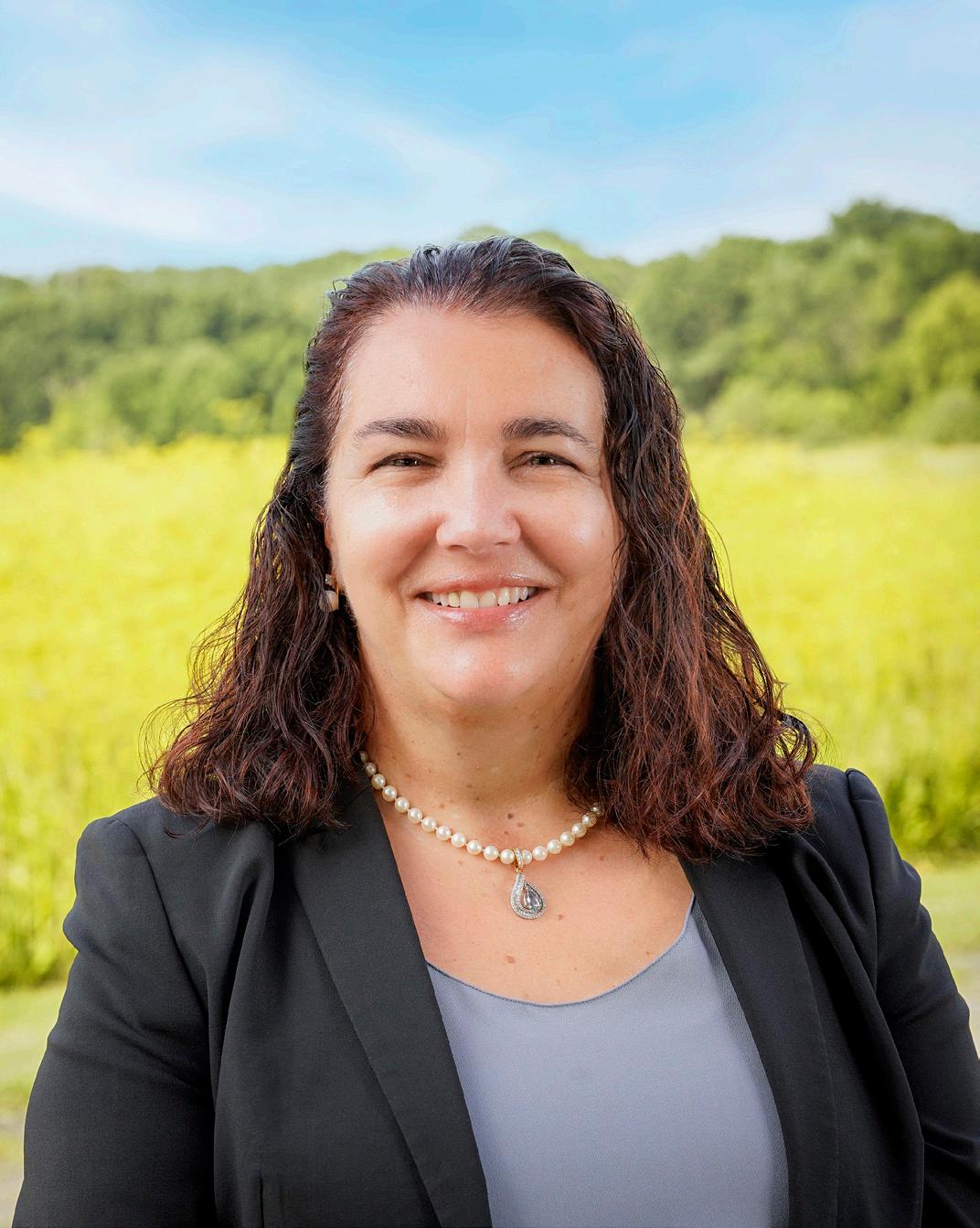
We will continue to demonstrate the relevance of the liberal arts to prospective students and their families, relating how the liberal arts develop critical-thinking and problem-solving skills, and how those skills form the foundation of global citizenship.
As I shared at my inauguration last year, the liberal arts have guided all phases of my career and continue to support me as a lifelong learner, a committed community member and servant leader, a strategic thinker, and a calculated risk-taker. I believe Ripon College will continue to be successful in preparing graduates for their first career and the many careers and personal and professional interests that follow.
 Victoria N. Folse President
Victoria N. Folse President
Amajor finance conference in New York City has opened up new career possibilities for Citlali Marquez ’24 of Holyoke, Colorado. Marquez is an HSF Scholar as designated by the Hispanic Scholarship Fund. Out of more than 59,000 applicants from across the country each year, only 10,000 are chosen to be a Scholar and become eligible to apply for various conferences.
The Hispanic Scholarship Fund (HSF) empowers students and parents with the knowledge and resources to successfully complete a higher education, while providing support services and scholarships.
HSF has awarded more than $730 million in scholarships and provides a broad range of programs and support services. Criteria for selections as an HSF Scholar and for attendance at individual conferences are based on a number of factors, including Hispanic heritage, grand-point average and attendance in an accredited school.
As a communication and finance major at Ripon, Marquez was one of only 120 Scholars chosen to attend the conference Oct. 12-15. Scholars were introduced to career paths, met and networked with professionals from a range of finance-related industries, and discussed finance careers and internships.
‘I wanted the opportunity to network with corporate companies that I would like to see myself working at,” Marquez says. “I made a lot of good connections and was offered a lot of opportunities to apply for specific internships.”
She talked with recruiters of Fortune 500 companies, got professional headshots, her own business cards and advice on strengthening her LinkedIn profile and résumé.
Previously, she says she thought she would be content being an accountant in a small town such as her hometown and working mostly with farmers. She says the conference has opened her eyes to other possibilities and inspired her to also consider working in the corporate world.
“Before, I was beyond scared to think about working in a larger city, but seeing the passion from all the panelists we listened to and hearing their stories, I am now looking into applying for internships.”
Marquez came to Ripon when she was recruited to be on the swim team and was offered a good financial aid package. “When I toured the campus, I absolutely fell in love with Ripon immediately,” she says. She has been actively involved in numerous activities on campus and feels this experience gave her an edge in being selected as an HSF Scholar.
“I wanted the opportunity to network with corporate companies that I would like to see myself working at. I made a lot of good connections and was offered a lot of opportunities to apply for specific internships.”Citlali Marquez ’24
She has served as public relations chair of La Unida, a LatinX group that is part of the Diversity Coalition; treasurer and president of the Student Programming Council; vice president of finance and vice president of learning and development for Kappa Delta; and a Student Senate leader.
Marquez hopes to inspire other Hispanic students to apply to HSF. “It establishes confidence in the students they are helping out,” she says. “Many of them were first-generation students, so they share similarly experiences to the students they are helping. They are so involved in opening the door but not holding your hand. They really help build a student up.”




When Aaron O’Halloran ’24 joined his MST 215: Controversies and Contexts of Museum Studies classmates on a visit to Lane Library, he made a family connection.
While looking at the College’s Robert S. Hagge Signature Collection, O’Halloran observed the signature of his own seventh-great-grandfather, John Hart. Hart was a politician in colonial New Jersey and a signer of the Declaration of Independence.
The Robert S. Hagge Signature Collection includes signatures by all U.S. Presidents from George Washington through George W. Bush and 26 signers of the Declaration of Independence. Hagge was a Trustee of the College, and he donated the collection in 1968. Signatures of later presidents were eventually added.
“All of the signatures from before JFK should be done by hand,” says Travis Nygard, professor of art history. “After that, it is possible that some were done with an ‘autopen,’ which is a machine that holds a pen and can write a signature for someone using a template. I suspect that some of the recent ones are autopen signatures, but since the machine holds are real pen or marker, it can be hard to tell, even with a magnifying glass!”
Ripon College’s signature of John Hart appears to be on colonial currency from New Jersey, where Hart was a politician. Nygard says Hart signed a substantial amount of currency.
“The signature is real, almost certainly done with a feather quill as metal nibs for pens had not been invented yet,” Nygard says. “The ink is dark-brown, so it was probably made by boiling walnuts or something similar.
“I had no idea that Aaron had ancestors in colonial America, and as the class looked at documents I was just rattling off the names of people whose signatures are in the College’s collection. I could not have been more surprised when he suddenly exclaimed that he was descended from John Hart. It was a lot of fun to discover the personal connection, as I
“I was holding something that I had only seen pictures of on the Internet. It was really cool finding something here at Ripon that is important both to our nation’s history and my family.”
Aaron O’Halloran ’24
had assumed that we would just be having an intellectual experience about early American history.”
O’Halloran says he discovered the family connection with Hart when he asked relatives about his family history for a fifth-grade project. O’Halloran is descended from Daniel Hart, one of John Hart’s 13 children. “Being the history buff that I am, I found it very cool and have learned everything I could about (John Hart) since then,” he says.
Seeing Hart’s signature in person “was kind of surreal. I was holding something that I had only seen pictures of on the Internet. It was really cool finding something here at Ripon that is important both to our nation’s history and my family.”
O’Halloran is a senior from Oshkosh, Wisconsin, majoring in political science and history. He plans to earn a Ph.D. in history and become a professor, “making my own contribution to the history field and sharing my passion with others,” he says.
Although currently not on display, the collection can be viewed by appointment with Andrew Prellwitz, librarian - user services, director of Lane Library and archivist.
Jaye Alderson College Editorjohn hart was a politician in colonial New Jersey. He was born in 1713 and died in 1779. He was a delegate to the Continental Congress and a signer of the Declaration of Independence.
Hart served in the New Jersey Colonial Assembly; as a judge on the Court of Common Pleas, where he was often called “Honest John”; as vice president of New Jersey’s revolutionary assembly (or provincial congress); as elected speaker of the newly formed New Jersey General Assembly; and on several other governmental committees.
In June 1778, prior to the Battle of Monmouth, he invited George Washington and the 12,000 men of the Continental Army to encamp on his farm, and he had lunch there with Washington.
He died before the end of the Revolutionary War. His

obituary read: “JOHN HART, Esq. the Representative in the General Assembly for the county of Hunterdon, and late Speaker of that House. He had served in the Assembly for many years under the former government, taken an early and active part in the present revolution, and continued to the day he was seized with his last illness to discharge the duties of a faithful and upright patriot in the service of his country in general and the county he represented in particular. The universal approbation of his character and conduct among all ranks of people, is the best testimony of his worth, and as it must make his death regretted and lamented, will ensure lasting respect to his memory.”
His descendants include Congressman John Hart Brewer, former House majority leader Steny Hoyer — and Aaron O’Halloran ’24.


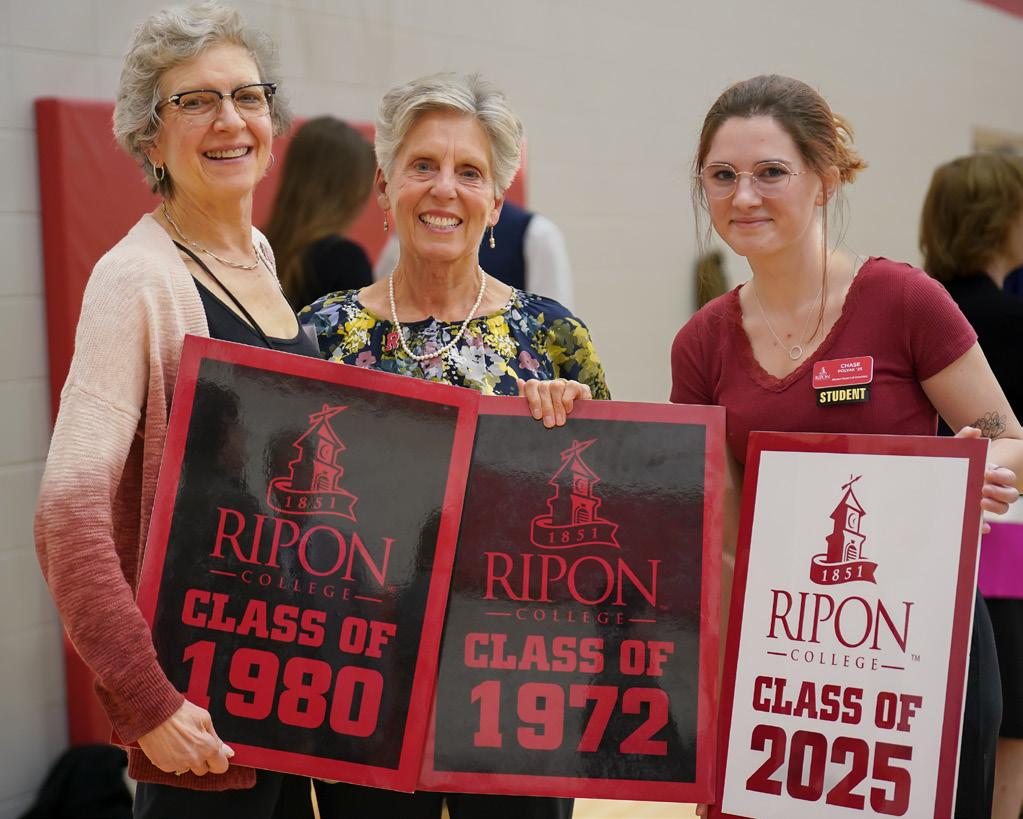
In December 2023, Forever Ripon, Ripon College’s fiveyear comprehensive campaign and largest philanthropic effort in its history, achieved its initial goal of $75 million, 18 months ahead of schedule. While Ripon will keep the original campaign timeline with an ending date of June 30, 2025, it now will pursue an extended goal of $100 million. As of January 2024, Forever Ripon gift production sits at $84.7 million.
“When we embarked on the Forever Ripon campaign, there were concerns from some that the $75 million goal was overly ambitious,” says Vice President for Advancement, Marketing and Communications and Chief of Staff Shawn Karsten ’09. “Surpassing that goal 18 months ahead of schedule speaks to the passion and commitment of our donor base and their collective belief and trust in our future.”
Following a quiet phase that began in July 2020, Ripon publicly announced the campaign in April 2023 during the inauguration of the College’s 14th president, Dr. Victoria N. Folse. Since that announcement, more than $30 million in new gifts have been documented.
“The energy and success of the campaign has been amplified by its coordination with our strategic planning process,” says Folse. “Both endeavors are playing critical roles in solidifying Ripon College’s future by the time we celebrate our 175th anniversary in 2026.”
Since the start of the campaign, 24 new endowed funds have been created, the $8.5 million Hopp Stadium celebrated its grand opening, construction began on the $24.5 million Franzen Science Center and early fundraising success for the residence halls have allowed for scheduled upgrades in summer 2024. The extended goal of $100 million will continue
to prioritize the endowment to provide access and impact, facility enhancement to facilitate additional residence hall improvements and the unrestricted Ripon Fund.
“Ripon should celebrate this moment, particularly through our gratitude to the thousands of donors who have helped us reach this important milestone, but we’re not done.”
Shawn Karsten ’09, vice president for advancement, marketing and communications and chief of staff
“Ripon should celebrate this moment, particularly through our gratitude to the thousands of donors who have helped us reach this important milestone, but we’re not done,” adds Karsten. “We have greater potential, greater needs and many constituents whom we have yet to engage.”
“This is such a critical moment in Ripon College’s history,” adds Mark Franzen ’83, chair of the Board of Trustees. “For Ripon to remain relevant and competitive, we must continue to innovate and set ambitious goals, neither of which are possible without the expertise and support from our alumni, parents and friends.”
To learn more about the campaign’s goals and priorities, visit ripon.edu/forever-ripon

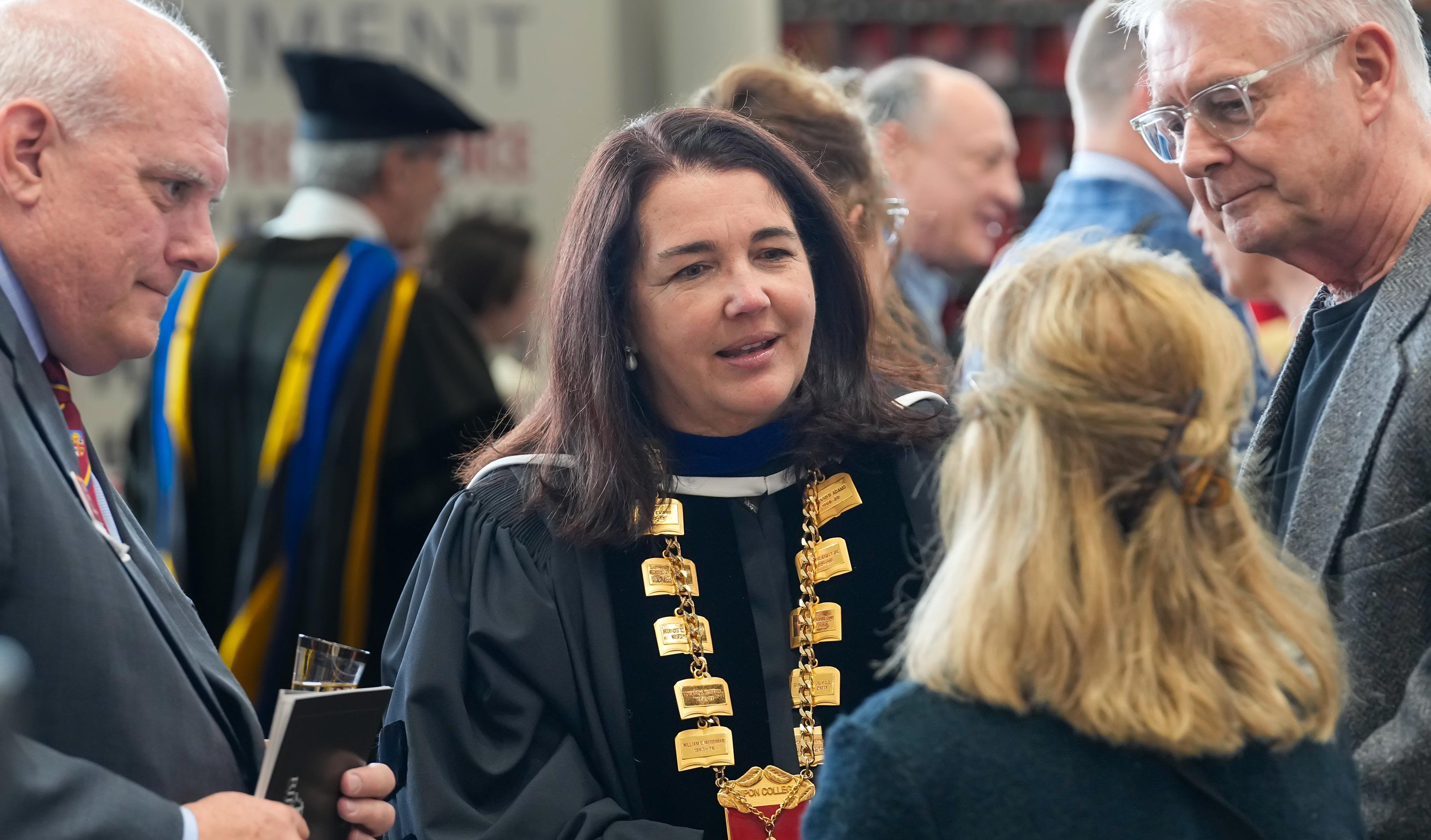
Forever Ripon
By the Numbers
112 Events held $75 MILLION $84.7 MILLION $100 MILLION
New Goal Raised Original Goal
43 New Partners in the Legacy
24 New endowed funds created
12,777 Total gifts made $6,550 Average gift

It was a time for celebration as Ripon College held its official grand opening of the new on-campus stadium, Hopp Stadium, Oct. 21, 2023.
The day was capped off when the football team pulled off a stunning 12-0 upset victory over previously undefeated Lake Forest College in the afternoon. The Ripon Red Hawks forced six turnovers and shut out the defending Midwest Conference champions.
The women’s soccer team lost 0-3 to Monmouth College in the morning.
Hopp Stadium is now the home for games by the football team and the men’s and women’s soccer teams.
The game day experience was enhanced with a tailgate party, featuring a pig roast and chicken barbecue buffet; yard games; a merchandise tent offering new Ripon College sports-themed apparel

and collectibles; and the introduction of Ripon’s food truck, Ceresco’s Provisions.
Special recognitions honored Steve Hopp, Class of 1983 and a member of the Ripon College Board of Trustees, and his wife, Meg Hopp, the benefactors after whom the new stadium is named; and Hall of Fame football coach Ron Ernst, who retired from Ripon College after the 2022 football season.
“The palpable excitement of the campus stadium’s official grand opening was incredible,” said Director of Athletics Chris Schumacher. “Hopp Stadium is an outstanding campus stadium and offers an exemplary setting for future athletic competitions and outdoor celebrations of all types.”
The 157,000-square-foot facility is designed to support Ripon’s continued athletic excellence and enhance the overall student experience. This mixed-use space is on


the corner of Thorne and Union streets, across from Willmore Center. It seats 2,000 in the grandstand, allows for a better fan experience for students and families, and provides a setting for concerts, intramurals and other student and community activities.
An investment in athletic facilities already has proven prudent. Since the opening of Willmore Center, the updated health and wellness facility, in August 2017, enrollment by student-athletes has increased by 44%.
far left: Midfielder Kaley Kowal ’24 attempts to control the ball near the Monmouth goal during the first half. She accomplished three shots during the game.
left: Entrance to the stadium
above: Rally the Red Hawk, President Victoria N. Folse, Steve Hopp ’83 and Meg Hopp celebrate.





1 Junior defensive back Jake Davies celebrates after intercepting a pass.
2 Head Coach Jake Marshall ’10 leads the Red Hawks football team onto the field through a haze of red smoke.
3 Hall of Fame football coach Ron Ernst was recognized.
4 Stuffed Rally dolls were a popular item sold at the merchandise tent, particularly for the kids.
5 First-year wide receiver DeMarcus Conner hauls in a pass from sophomore quarterback Jack Berens during the third quarter. It would be the sole touchdown by either team.
6 The plaza outside Hopp Stadium looking north



or Matthew Biwer ’09, his first steps toward traveling the world started at Ripon. An archaeologist and college professor today, he credits the guiding forces he found at Ripon College as playing an important role in helping him discover his passion.
Biwer currently is an assistant professor in the department of anthropology and archaeology at Dickinson College in Carlisle, Pennsylvania. At Dickinson, Biwer specializes in paleoethnobotany, the analysis of plant remains from archaeological sites.
“It’s always been just incredible: the research and travel opportunities,” says Biwer ’09, who has made some exciting discoveries while working abroad. “It’s not all glitz and glamor and Indiana Jones. There’s a lot of work that I do that goes into it. But I feel very privileged in many ways to be able to do this work and now to teach at a small liberal arts college as a professor — the thing that I love. … I guess, yeah, I do have to pinch myself sometimes. It’s just incredible.”
Biwer ties his work in the field to his time at Ripon College. “Ripon was fundamental,” he says. He explains that after taking an archaeology class in his first semester at Ripon, he was hooked. “I had a lot of opportunities to work with faculty … and found a trajectory,” he says.
“I have worked all over the world on archaeological projects, but most intensively in southern Peru,” he says. “Most recently, I have been working with a group of colleagues doing an archaeological survey on the south coast of Peru. We are
interested in addressing several research questions, but most importantly are issues of identifying the cultural affiliation and chronology of the valley, investigating how populations in the valley adapted, responded and managed their environment in the face of climate change, as well as issues surrounding ancient politics, colonialism and population movement.”
Why Peru? Simply put, he was “captivated” by the area, describing the archaeological sites in the region as “just spectacular.”
“It’s one of the most arid regions in the world, so we have some of the best preservation of organic materials and human remains that you will find anywhere,” Biwer says. “I’ve excavated houses that are 1,400 years old, and there have been baskets and corn cobs and potatoes and all kinds of things coming out of the ground that are perfectly preserved.”
That work led to Biwer’s brush with fame, when he had an article published in the journal Antiquity. “I didn’t expect it to go viral, but it kind of blew up,” he says. “I was getting interviews from Science and Nature and National Geographic, and podcasters and news agencies.”
Back in 2016-2017, he was analyzing plant material found while doing soil samples from an excavation site in a pre-Incan Empire community in the Sihuas Valley of Peru. “(I would) take it back to the lab and then comb through the dirt looking for plant remains,” Biwer says. “We use this to interpret how humans are cooking, eating, modifying the environment and more.”

I found Ripon as a place that supported my interests and it gave me my first experience in engaging in the research process and cultivating my interests in archaeology and anthropology and botany. It was a liberal arts institution where I was encouraged to bring these things together.”
Matt Biwer ’09
That’s when he discovered some vilca seeds in the soil, perfectly preserved, from about the year 880. These seeds are interesting because they aren’t just used in cooking. “It’s (also) been used as a hallucinogenic snuff,” Biwer says, explaining that it could be incorporated into ritual ceremonies.
But, based on where he found the seeds, Biwer realized they were being used in interesting ways. “If you add it to the alcohol, there’s actually a reaction that occurs … that allows for this altered state of consciousness to occur,” Biwer says.
This discovery enabled Biwer to make a connection. “In a modern sense, we think of hallucinogenic drugs as being recreational things people take to get this experience,” he says. “But anthropologically … almost all cultures around the world have some kind of documentation that anthropologists have found for using these hallucinogenic substances in various forms around the world. This is another example of how hallucinogenics could be a part of a larger experience, and not in a recreational sense.”
He adds, “I think we can take those lessons from the past and apply them to today, whether it’s indigenous technologies, or ways
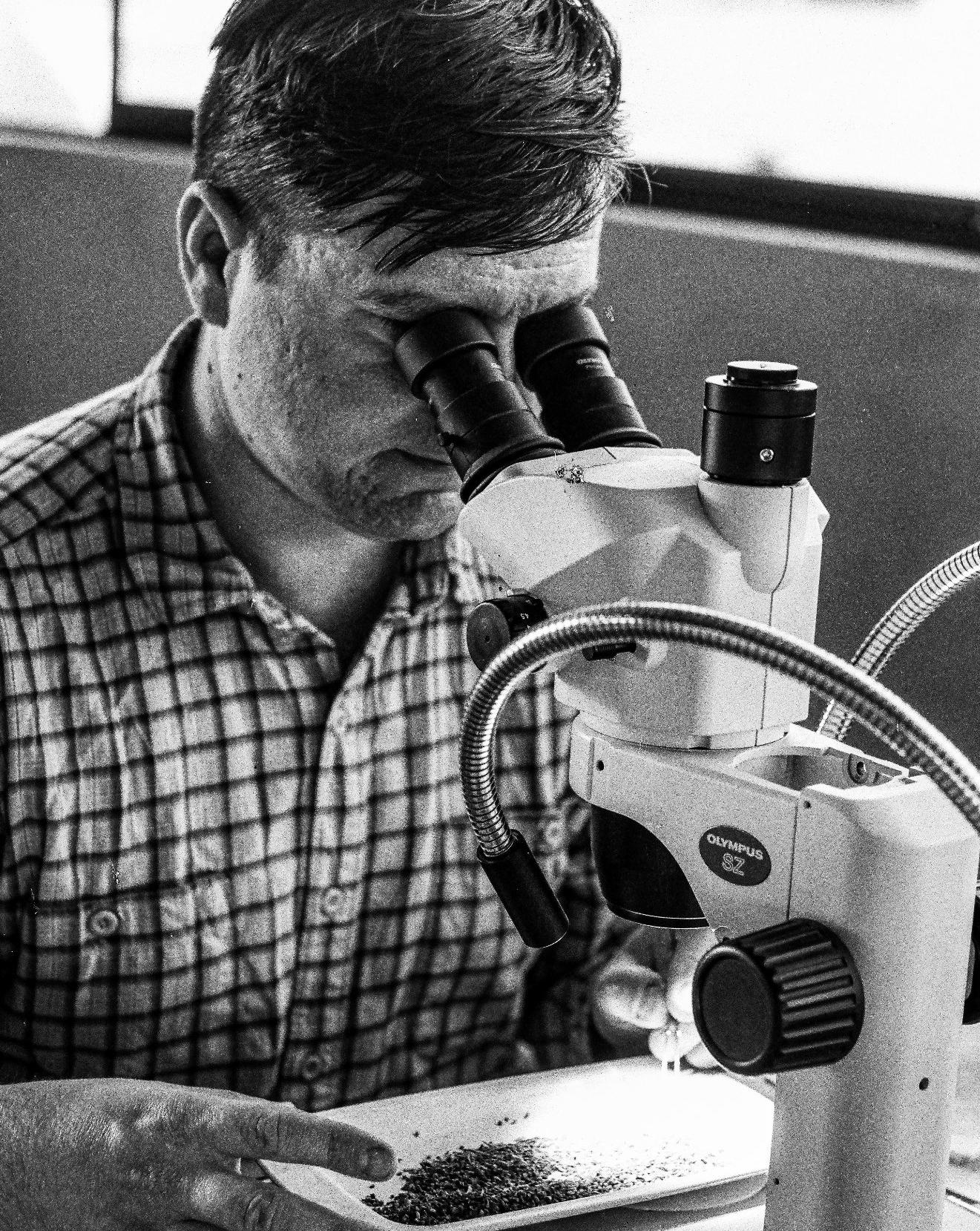
Biwer stands in front of Cerro Baúl, an archaeological site that has formed a central part of his research in southern Peru. Biwer analyzes archaeological plant remains from the Huaca del Loro
of farming, or ways of organizing society, or ways of managing the environment through fire-burning regimes.
“We’re no different from people who were living 5,000 years ago, other than the technology has changed. We still have the same needs and we’re doing the same things to the environment as people were hundreds or thousands of years ago, just on a larger scale.”
These are all discoveries that would not have been possible without his Ripon College education. “I found Ripon as a place that supported my interests and it gave me my first experience in engaging in the research process, … cultivating my interests in archaeology and anthropology and botany,” he says. “It was a liberal arts setting where I was encouraged to bring these things together. … It gave me a road to pursue for my later graduate and professional scholarly work.”
Ian Stepelton ’98 Adjunct Instructor of Journalism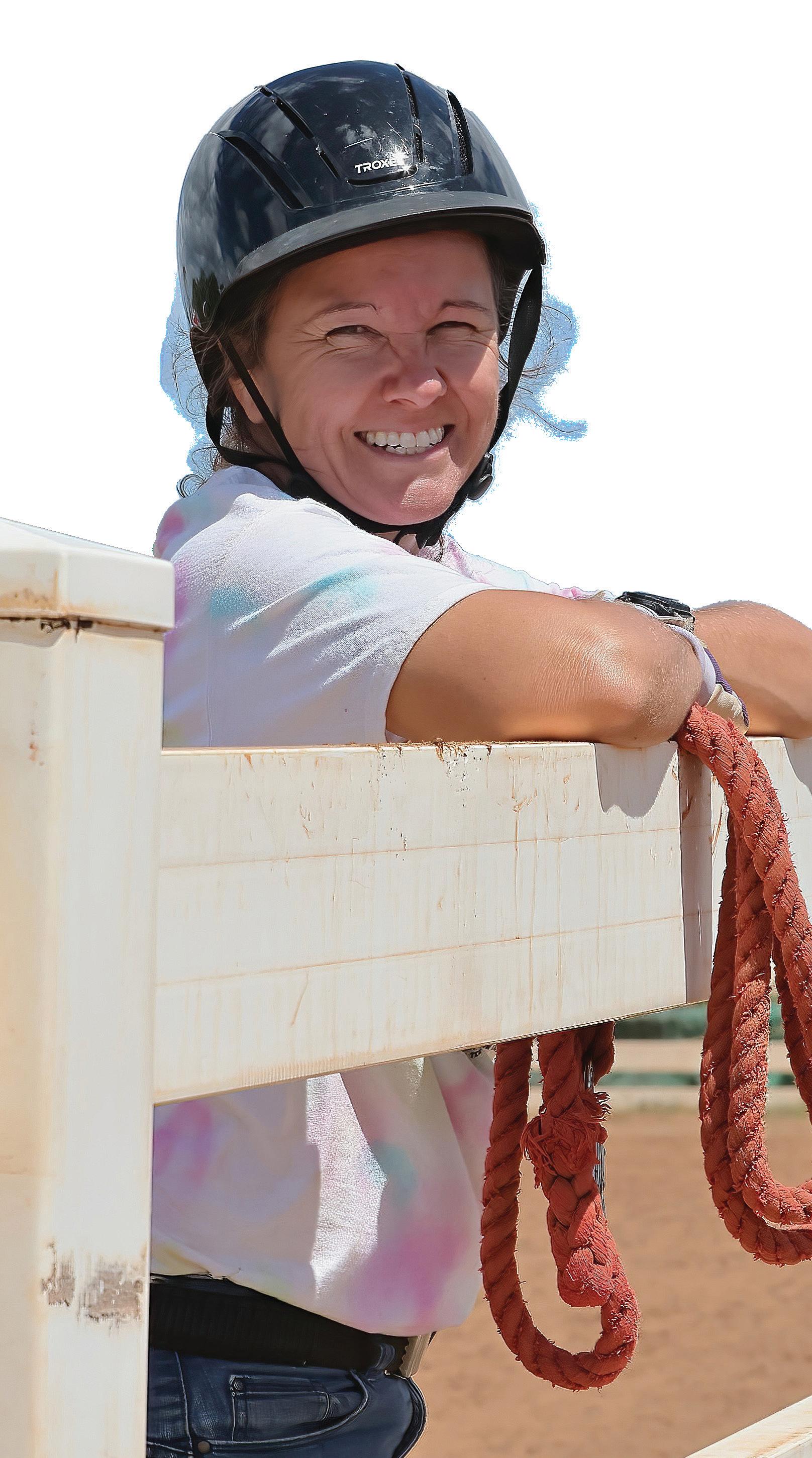

Samantha Grant Henriques ’95 says she has always had a thirst for knowledge and has received education and training in a vastly diverse number of disciplines. But everything has come together in a perfect blend for her life of service.
At Ripon, Henriques held an internship in sports medicine while also doing research at nearby Rush Lake during the early days of an important project meant to remove lead shot from years of hunting along the lake. She explains that the procedures she and others created later were used by the Wisconsin DNR to restore the lake.
She left Ripon with degrees in physical education and English under her belt, as well as a minor in environmental biology.
After Ripon, she received a master’s degree from Utah State University in the Department of Health, Physical Education and Recreation with a concentration in sports psychology. She then continued to diversify with a post-baccalaureate certification in secondary education–science from University of Hawaii-Manoa, certifying her to teach science in grades 7-12 in the state of Hawaii.
Along the way, she furthered her education with multiple certifications to enrich her athletic training: strength and conditioning specialist, corrective exercise specialist, Kauai Master Gardener, with a focus on ethnobotanicals, medicinal and invasive weeds, CPR instructor, Emergency Medical TechnicianUtah, lifeguard and therapeutic riding and driving instructor, all addressing her passion for nutrition and psychology.
That’s seemingly an eclectic mix of disciplines, but today they all come together as Henriques runs Healing Horses Kauai in Hawaii while also working as an athletic trainer at Kapa’a High School. These twin roles enable her to make a difference in the lives of people of all ages.
As a middle school science and math teacher, she has successfully mentored multiple youths through state science fair competitions and run the school’s garden club, donating hundreds of pounds of produce to the food bank each year.
left: Samantha Grant Henriques ’95 at Healing Horses Kauai.
above: Samantha Grant Henriques ’95 leads a lesson.

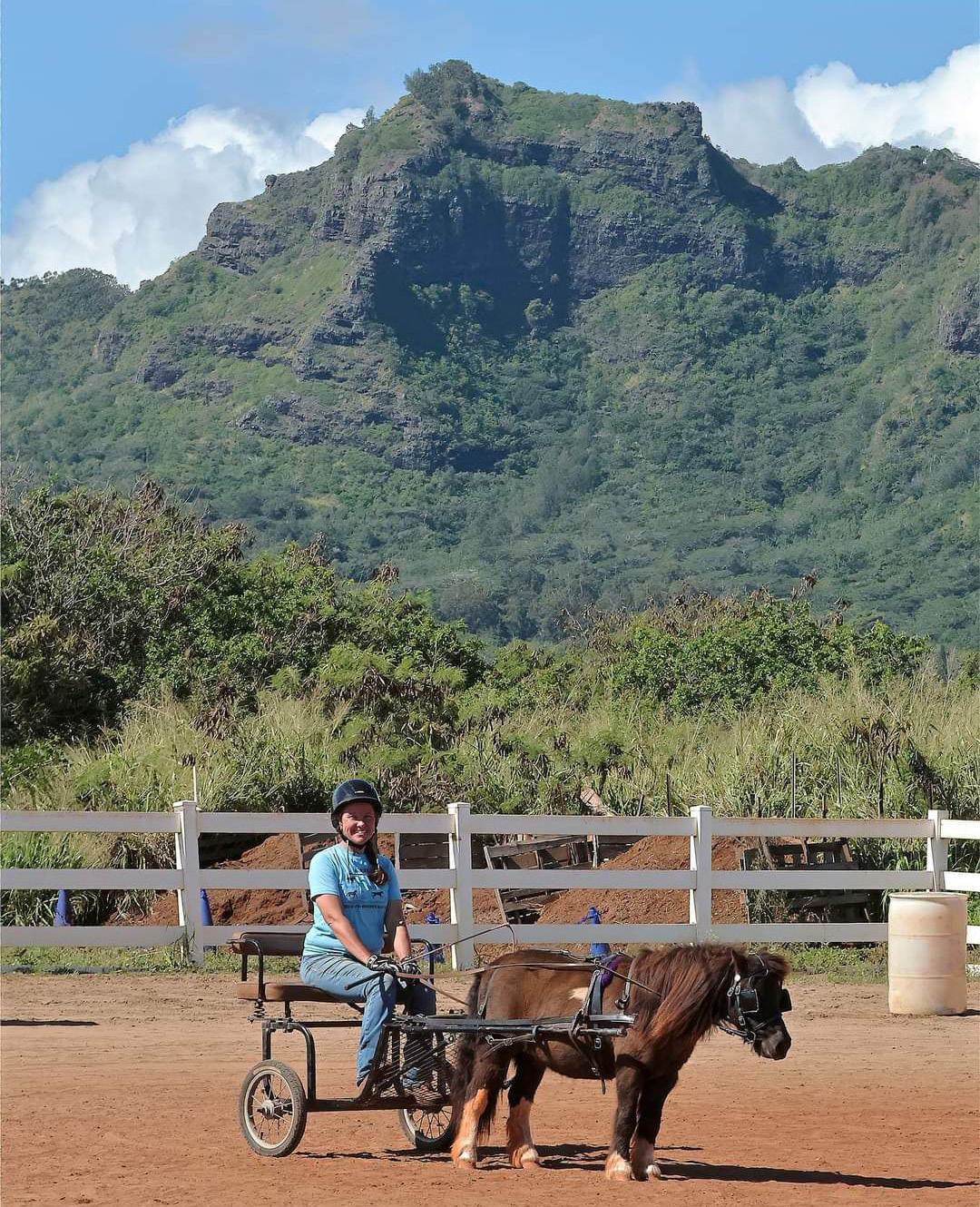
Her skills in athletic training have taken her around the world, she says, from Ripon to Utah to Costa Rica. She even had a short stint in 1998 as the interim head athletic trainer for Ripon College. “Until one snowy May 4 — yes, that’s right, it snows in Ripon in May,” she says. “A school in Hawaii called and offered me a job — how could I resist?”
Henriques appreciates how her mentors at Ripon College pushed her to do better while giving her a safe space to learn.
English professor David Graham, for example, “challenged my writing style continually and was part of the teaching team that helped me take 17-25 credits per semester,” she says.
It was the room to grow at Ripon that made the difference, Henriques explains. “It is not so much what Ripon College had, but what Ripon College permitted one to try that was the preparation for myself,” she says. “The sometimes challenging circumstances that I faced at Ripon College proved valuable in learning to deal with others to achieve a desired result.”


That trait honed at Ripon was valuable in her role of leading Healing Horses Kauai. “Our mission is to enrich the lives of people of all abilities and ages through Equine Assisted Activities and Therapies (EAAT), improving their physical, cognitive, social and/ or emotional well-being,” Henriques says, noting they currently serve riders from ages 4 to 92.
She sees her early work at Ripon as instrumental in preparing her for this role. “The environmental biology minor, with the ecology courses taken at the Wilderness Field Station, helped formulate an ecological frame of mind which permitted the merging of many fields of knowledge,” Henriques says. “(This is) a requirement when running a nonprofit horsemanship center where you must understand the science of good teaching (pedagogy), understand physical, mental and behavioral disabilities, understand equestrian studies, pasture management, grant writing and more.”
Now, that love of Ripon College has extended to another generation, as her son, Alex Henriques ’25, now attends Ripon College as well.
Ian Stepelton ’98 Adjunct Instructor of JournalismSamantha Grant Henriques ’95 “
It is not so much what Ripon College had, but what Ripon College permitted me to try that was the preparation for myself.”
Words can have powerful effects. For more than 50 years, author Judy Blume has profoundly touched readers – particularly young adults –with more than 25 books dealing honestly with sensitive, mature subjects such as puberty, sexual exploration, religion, bullying and depression.
Books such as “Are You There God? It’s Me, Margaret,” “Tales of a Fourth Grade Nothing” and “Deenie” have won her numerous awards and have led to her recognition as one of the 199 Most Influential People in the World by Time magazine in 2023, a Library of Congress Living Legend and a winner of the 2004 National Book Foundation medal for distinguished contribution to American letters.

The recognition and understanding she provided for millions of readers she also provided very personally for a 12-year-old girl in Green Bay, Wisconsin — future Ripon College French and Spanish major Karen McCulloch Chilstrom ’92.
In 1982, Chilstrom was struggling and had no one to turn to. Her parents were divorced, her family had just moved, she was dealing with a new school and trying to make friends, her brother had committed suicide a year earlier and she had endured seven years of sexual abuse.
“At that time, there were fewer resources and little mental health support available for people who had experienced abuse as a child,” Chilstrom says. “I was still a child myself and didn’t know where to turn for support.”
She was moved by Blume’s authenticity and honesty as a writer and decided to write her a fan letter. She even included a stamp for a return reply. Although Blume was receiving 1,000 to 2,000 fan letters a month at that time, she did reply. Thus started a 40-year correspondence that continues today and changed the trajectory of Chilstrom’s life.
Blume was the first person with whom Chilstrom shared her childhood trauma, and Blume offered love, care, a listening ear and a kind word. “Judy very much hoped I would go to college and was thrilled when she learned I had chosen to attend Ripon,” Chilstrom says. “As the youngest child in my family and the only one who pursued higher education, I did not have older brothers or sisters to pave the way for me and to share their tips about how to be successful in college.
“Judy was a lifeline for me as I navigated the challenging transition from childhood to adulthood. I continued my correspondence with Judy during my years at Ripon, and her constant care and support, coupled with the nurturing, caring environment of the Ripon College community, played a key role in my success.”
She adds that her Ripon professors provided outstanding language training and served as role models and inspiration as she later taught foreign languages at the high-school and college levels.
In 2023, the documentary “Judy Blume Forever” premiered at the Sundance Film Festival in January and was released to the public on Amazon Prime in April. Its release coincided with that of a film based on Blume’s book “Are You There God, It’s Me


“
My main takeaway after all these years of correspondence with Judy Blume is that one person can profoundly affect the life trajectory of another. Indeed each of us has the power to transform and save lives.”Karen McCulloch Chilstrom ’92
Margaret?” which also opened in theatres in April. Because of her unique friendship with Blume, Chilstrom was asked to participate in the documentary.
“My participation in the film was, in many respects, quite excruciating,” Chilstrom admits. “It’s one thing to talk about sexual trauma with a trusted friend. Opening my heart and sharing intimate details of my story with a worldwide audience required even greater courage.”
Since the release of the film, Chilstrom continues to receive letters from women who relate to her experience and share their own stories of trauma. “I can’t tell you what it feels like to be able to support and care for other people the way Judy has cared for me all these years. It’s a privilege to have this opportunity.”
Chilstrom now lives in Austin, Texas, where she earned a Ph.D. in Slavic languages and literatures from the University of Texas at Austin. She is a post-Soviet area studies specialist, researcher and writer. She also serves as a resident director of study-abroad programs in Russian-speaking counties. Most recently, she drew on her language skills and cultural expertise during two humanitarian missions to western Ukraine, where she worked with orphans who have been displaced by the ongoing war in that country.
“Sometimes we underestimate the power we have to create good in other people’s lives,” she says. “I have learned over time that vulnerability heals the world. My main takeaway after all these years of correspondence with Judy Blume is that one person can profoundly affect the life trajectory of another. Indeed, each of us has the power to transform and save lives.”
Jaye Alderson College Editor
above: Blume, left, and Chilstrom renew their friendship in 2023.
top: Chilstrom met Blume in person for the first time when she was 16.

“How has your study of the humanities impacted your life?”
Ripon College’s well-rounded, liberal arts education includes studies in the humanities — areas such as philosophy, literature, history and art history. Perspectives gained from these studies affect the way alumni see themselves and others, the way they want to lead their lives and the impact they will have on the world community, no matter what their profession has been. Here, Ripon alumni share how their liberal arts education continues to enrich their lives.
I used to think that at Ripon, people were laying it on pretty thick how studying humanities and liberal arts in general impacts your post-grad life, but since graduation I am amazed by how it has positively impacted me.
I think honestly the biggest impact is how I approach problems in my life, in the workplace, in school, in everything. The humanities can’t teach you the solution to all problems, but they do teach you there is a solution and give you the skills to find it. I know there is a solution to most every problem, and the humanities gave me the skills to solve them. My critical-thinking skills from the humanities let me have a more positive and confident attitude when it comes to solving problems, which has made me a better friend, employee, student and colleague.
Lindsey Wigand ’22 west allis, wisconsinAfter graduation, I pursued an MBA in accounting and became a CPA. I quickly discovered that the other CPAs, who had only done a business degree, had a more shallow understanding of problems and didn’t connect as well with the clients at networking events.
Once I left public accounting and went into private industry, I found my ability to problem-solve and “think outside the box” was better than my peers who only had business degrees. I learned to appreciate the depth and breadth of my liberal arts education at Ripon.
The small personal classes helped me learn to relate to different people and discuss different ideas in a constructive way. I had no idea when I started at Ripon what I wanted to do with the rest of my life, and studying the humanities allowed me to grow as a person, mature and have an interest in many things. Now in retirement, I am blessed to have so many interests and take lectures at our local university, continuing the learning about things I studied at Ripon.
Martha Kolliner Johnson ’75 new rochelle, new york
Being a product of the public educational system before Ripon, I was never required to articulate a thought. Studying English, history and philosophy opened my world completely. I became a lifelong student and developed a much keener understanding of the world around me and how it works than I otherwise would have had.Jim

In my freshman year at Ripon, I was privileged to take a course jointly taught by Professors Doug Northrup (pictured) and Bill Woolley on the emergence of the scientific world vision in the 19th century. We read Marx, Freud, Frankenstein, and about the development of the Periodic Table all in the same course. My understanding of the interrelationship between various facets of life deepened dramatically and forever made me an interdisciplinary thinker, which helped me tremendously in life and in my job at the U.S. Department of State working on trying to reduce the likelihood of nuclear use, whether by accident or design, specifically focused on India and Pakistan. As such, I needed to understand a bit of everything — including South Asian history, politics and culture; nuclear technology; U.S. laws, agreements and treaty commitments — and how they all fit together into a composite picture in order to determine how best to advance U.S. national security objectives. Truly one of the best classes ever.
I learned to think critically. Yes, one needs to learn the facts of a subject. I am generally able to see both sides of a discussion, but am able to form an opinion and effectively express it. I also try to look at bigger pictures whenever possible.
Kathryn Schultz ’89 fairfax, virginia
Increased my intellectual sensitivity to the frequently assumed underlying assumptions of knowledge, beauty and being throughout history and in a variety of cultures and religions.
DavidWeaver ’62 western, illinois
Conway ’88 oswego, illinois


Study of humanities at Ripon College not only helped me to comprehend relationships, issues and their context in personal life, but it also has served as a prism in my public service career. Without such background, my work in areas ranging from social sector development to refugee-related work, leading organizations at a national level in Pakistan and representing my country in the United Nations could not have been as effective or rewarding. The impact of professors like Robert Melville and Marianne Djuth (pictured) resulted in soul searching and compassion. Thank you, Ripon College. You continue to define me to this day.
Pervaiz Junejo ’87 islamabad, pakistan
The humanities impacted my life both professionally and personally. As an educator focusing on science and technology/ engineering education, the foundational learning in the humanities broadened and enriched my knowledge base beyond a singular focus. This enabled my work in collaboration across curricular areas to both make STE (science, technology and engineering) more inclusive and to effectively integrate with ELA (English and language arts) and history/social studies areas while maintaining the integrity of the disciplines. Having a broad, enriched undergraduate education enabled thinking across curriculum areas to see connections and throughlines that lead to teachers and students furthering their learning. Personally, humanities studies provided me with a background to draw on throughout my life, to both engage in further interests in art, literature and history. These personal pursuits have enriched my life with a sensibility to beauty and in relationships with others of similar interests.
Jennifer Lovejoy Craddock ’74 west newton, massachusetts
Cathy Lothrop Hager ’82 san ramon, california
Ripon College’s well-rounded, liberal arts education helped me immeasurably in my life. While at Ripon, I majored in politics and government, but had three minors: history, women’s studies and art. The diverse knowledge I learned at Ripon College helped me in several areas: Firstly, my liberal arts education enhanced my critical-thinking skills and made me a better businessman and highly successful investment manager. The study of history allowed me to look for patterns and trends that I might not have seen. It’s helped make my career thrive and make my clients wealthy. Secondly, women’s studies helped me to be a better husband to my wife and father to our two daughters. They have grown into wonderful, successful, independent women. Thirdly, the reading required for my Ripon education set up a lifelong passion for books and research. It has enabled me to become a paid, published author of a book about Connecticut history. Doc (William) Woolley (pictured) was a huge influence in this area. Lastly, the knowledge of art, history, politics and literature that I gained at Ripon College helped me immensely when I was a “Jeopardy!” contestant years ago. The broad-based liberal arts education aided my intellectual development and knowledge of some obscure trivia so that I can proudly say that I am a former “Jeopardy!” champion.
Dave Troy ’90 wethersfield, connecticut
As a science major at Ripon College, I also had ample opportunity to study humanities. Some of this occurred on campus, but the most impactful for me was the opportunity to spend a semester in Chicago through the Urban Studies Program with the city as my classroom. This gave me confidence after graduation go to new places far from home and much different than where I was from.
Paula Souik Bizot ’94 madison, wisconsin
I was an English major, philosophy minor at Ripon. Studying these two areas taught me numerous lessons. The most memorable takeaways include how to be a lifelong learner, the importance of storytelling in human relationships, how to hold civil discussions with people I may disagree with, and how to think “outside the box.” After college, I worked as a barista at a Milwaukee coffee company, in human resources at the same coffee company, and as a recruiter. In each of these positions, I drew on what I learned at Ripon, and added to it. Now I’m a law student at the University of Wisconsin Law School. The lessons I learned while at Ripon continue to enrich my life and my current studies.
Elly Davis ’15 madison, wisconsin
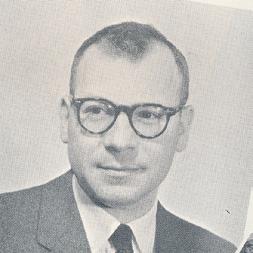
I was a history major. Professor (John) Glaser ’s (pictured) senior course in historiography compared different paradigms of historical thought and their origins. When the social science revolution of the 1970s challenged the dominant paradigm of logical positivism, I was ready. Dr. Glaser’s teaching of intellectual history is a background to which I return frequently. American philosophical pragmatism has been a key feature of my work. Although I changed fields, (I have been a professor of communication since 1970), I knew about paradigmatic debates and that exposure facilitated my move to systemic theory and the development of the communication theory, Coordinated Management of Meaning (Pearce and Cronen).
Vernon E. Cronen ’63 wilmington, north carolina
I attended Ripon for five years, member of Merriman, I had a great time — played football, participated in track, graduated with a degree in physical education and was in ROTC. Overall GPA was a 2.03. Hmm. Served three years in military police, left as a captain. After military, spent 15 years in Ripon’s Office of Admission and coached football, eventually becoming dean of admission in 1986. Left Ripon to become dean of admission at the University of Tulsa. Spent 25 years at TU. When I left, I was vice president for Enrollment and Student Services and dean of admission. I did all of this with just an undergraduate degree in physical education from Ripon — not even one class toward a master’s degree let alone a Ph.D. This speaks volumes for the education I received at Ripon.
John Corso ’68 tulsa, oklahomaLooking back on my journey, graduating in 1984 (yes, I know, hitting the big four-zero), through my 20-year corporate leadership career, and into my current role as a highperformance coach for the last 15, the influence of my humanities education at Ripon has been profound. My humanities studies at Ripon gave me a nuanced understanding of human behavior and psychology.
This has been invaluable in my coaching career, where discerning and addressing each client ’s unique motivations and challenges is critical. Secondly, my humanities education’s extensive reading and writing sharpened my communication skills. This ability to express ideas clearly and persuasively is essential in business, whether crafting a message that resonates with a client or delivering a corporate keynote speech. The broad perspectives I gained from studying various cultures, histories and philosophies have been instrumental in my ability to connect with a diverse clientele. It helps me tailor my approach to each individual, considering their unique background and worldview. Moreover, my studies’ emphasis on ethics, empathy and community responsibility has guided my approach to leading people and helping clients. I’ve strived to create a trusting and empathetic environment with everyone I’ve managed, where they feel understood and valued. Finally, the critical-thinking and problem-solving skills honed while studying humanities have been crucial. They enable me to analyze complex situations, offer strategic insights, and guide clients toward practical solutions. My humanities education has been a cornerstone of my professional and personal development, enriching my leadership approach to business in countless ways (in addition to DJ’ing to fellow gyrating classmates at The Beckoning).
Prior to attending Ripon, my grandfather said to me: “English is the only college major that will teach you how to think.” Advice I received in high school was, “No matter whether you are inspired by the course curriculum in college or not, find a way to take classes from the “Great Professors” at your college of choice. I followed the advice of my grandfather and my high school advisor when I attended Ripon College. The first impact was understanding the politics of college administration when I elected, and was required to petition, moving off campus for sophomore year (my college girlfriend also had to go through the same process). The learning of the English language has allowed me to have jobs (and then careers) in fields completely unrelated to my college major. The nuances of language and how to utilize specific words and phrases have allowed me to work in heavy construction, and to have a 35-year career in IT infrastructure. These career choices contradict many established study protocols for career pathways. The study of English also has allowed me to work as a wedding minister, ski instructor, musician, and driver for sanctioned drag-racing events. The ability to think, to put myself in the shoes of another person and calibrate expected and unexpected responses and reactions is a skill I would not have polished had it not been for Ripon College, outstanding professors, wonderful student interactions, and the overall smorgasbord of life I learned to appreciate in Ripon.
TedHunter ’81 brunswick, maine
I was a philosophy major. Went on to do graduate work in philosophy at New York University and Illinois. Ended up pursuing a career in business, retailing to be specific. I found my liberal arts education with a major in philosophy to be highly relevant to a successful business career.

oxford, connecticut
Intellectual curiosity, clear thinking, ability to communicate clearly verbally and in writing, and the ability to grasp concepts are critical in managing people and businesses. As a business person who hired many executives, I found that I could train individuals who were so educated. Training a person without such a background was much more difficult and also less likely to meet with upward mobility within the organization. It may not be fashionable these days to promote a solid liberal arts education, but I think it is indispensable.
RobertSegal ’75 dublin, ohio

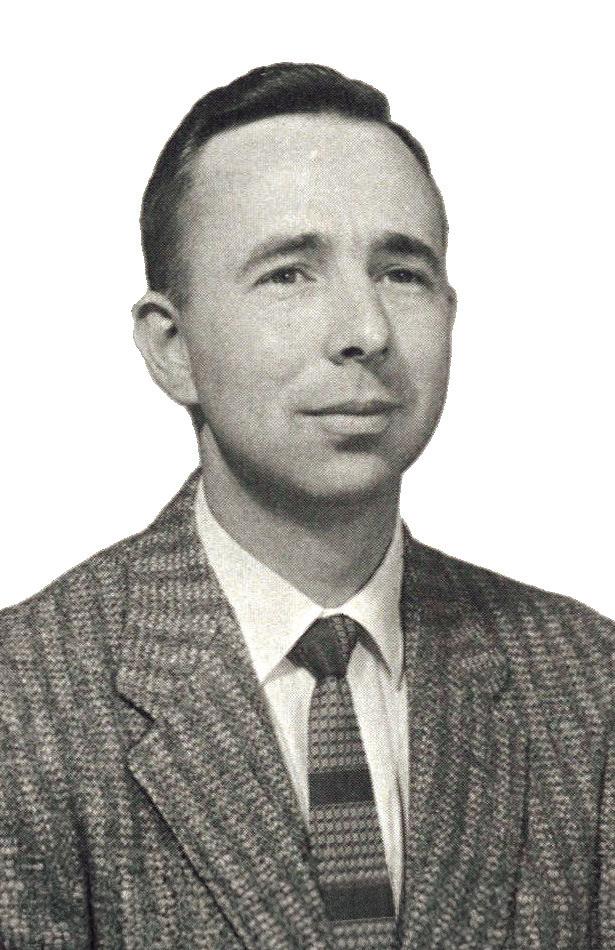


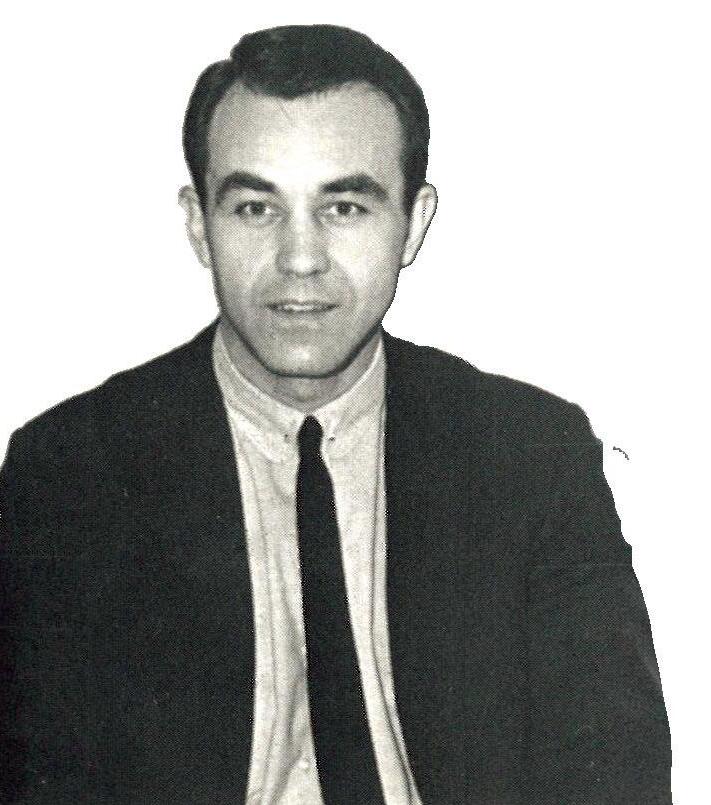

“My Ripon College experience was only the first step in my educational and career journey, but in many ways it was the most important. I know too many people who did a beeline straight into professional education and emerged as engineers, financiers, accountants and actuaries, to name a few, without the benefit of a liberal arts education.
While the liberal arts route offers less guarantees in terms of income, I believe it does provide one very important potential advantage. Through broad exposure to a variety of disciplines, including the arts, it results in an overall more well-rounded education that pays great dividends in terms of life enrichment and quality of life. Let me provide just one example. In my freshman year, I took a Music Appreciation course taught by Donald Cuthbert. Cuthbert was not a tenured professor, and it seems that he wasn’t a professional academic. But he clearly loved classical music and had a talent for spreading that love to his class. The enjoyment of listening has been a constant with me throughout my life. Similarly, the Ripon College Film Society taught me the appreciation of international movies and TV. But I would be remiss to overlook the benefits of a close association with professors of great knowledge and dedication to their fields. Some names come to mind: (John) Glaser, (William J. ) Martz, (Doug) Northrup, (Donald) Speis, (Raymond) Stahura, and (Ralph L.) Wickstrom. These professors, and many more, left a permanent mark on me through personal and life enrichment.
Scott Schaedel ’72 evanston, illinois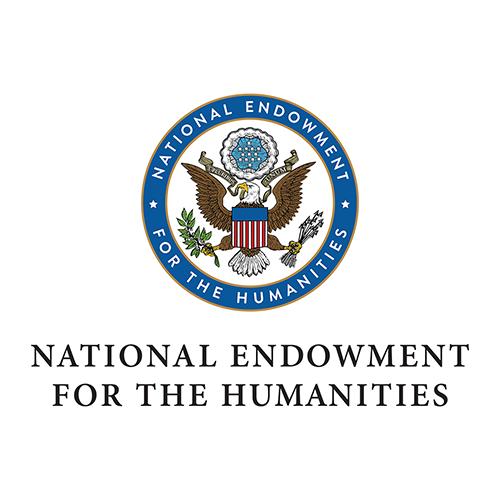
A three-year grant project focused on revitalizing the humanities at Ripon College, sponsored by the National Endowment for the Humanities, began on campus this fall. Led by Brian Bockelman, professor of history, this initiative aims to make Ripon a leader in humanities education at small liberal arts colleges and explore new directions in humanistic study that have emerged in the 21st century.
“We hear a lot these days about a ‘crisis’ in the humanities,” says Bockelman. “In reality, all this anxious talk reflects a new urgency to assert their value once again in the face of rapid social, political and environmental changes.”
The project coordinators seek to establish that small, rural colleges can offer a unique setting for the study of the humanities, particularly at a time when environmental concerns are leading people to reconsider what it means to be human.
Join the alumni contributing to this effort by sharing what made humanities courses at Ripon memorable for you and how they contributed to a meaningful life after graduation. Send responses to humanities@ripon.edu.
study of rare sugars and their impact on how organisms tolerate environmental stress could have profound applications on agriculture, pharmacology, ecology, cosmetics, food science and materials science, says Associate Professor of Physics Christina Othon.
Othon, along with her collaborators Associate Professor of Chemistry Patrick Willoughby and Erika Taylor, associate professor of chemistry at Wesleyan University in Connecticut, have been awarded a National Science Foundation Grant worth more than $259,000 over four years for their interdisciplinary research study.
The study was recommended for funding from the Division of Chemistry: Chemical Structure, Dynamics, and Mechanisms
A program. The work involves a combination of standard thermodynamic techniques, ultrafast spectroscopy, and computational simulation on how sugars interact with proteins.
While nature creates dozens of types of sugars, Othon says, only a select few help protect organisms against environmental stress. Examples include animals such as wood frogs that prepare for winter hibernation by building up glucose in their bodies that slows down their systems to an ice-frozen state for the duration of the winter.
Another example is Tardigrades, also known as water bears. These microscopic animals can survive extreme environmental changes, including temperatures ranging from near absolute zero to more than 300 degrees Fahrenheit, radiation, extreme acidity, starvation, low oxygen, and more than a decade of severe dehydration.
Their bodies use the sugar trehalose to help them survive, Othon says. “They go into a quiet state and change the way they behave.” Yet trehalose and common table sugar, for example, have identical chemical composition, she says. “They have the same chemical properties. They should have the same types of interactions. But they don’t. There is no good reason nature should choose one over the other to act as osmolytes,” organic molecules that influence the properties of water and biological fluids, particularly in response to environmental stressors.
“But the best osmolytes are more effective than table sugar or malt sugar. The question is why, when they are chemically identical.” Othon and Taylor have been working on this project since 2015.
They already have studied many of the common sugars, but until now haven’t been able to study the “rare” sugars that are chemically identical to natural osmolytes. “Getting a high-purity sample is hard,” Othon says. “They are very expensive and cost-prohibitive.”
With their studies of these rare sugars, the researchers hope to discover what their properties are and how they behave differently than other sugars when they interact with proteins.
“The proposed research has broad application to the applied fields of agriculture, pharmacology, ecology, cosmetics, food science and materials science,” Othon says. “The compounds studied are often employed as natural preservatives and low glycemic index sweeteners.
“Improved knowledge of how these molecules
function
and their biological
interactions could be useful in enabling geneticists to make crops more heat-tolerable and to help stabilize the food supply.”Christina Othon, associate professor of physics
“We live in a changing environment. Temperatures are getting higher with climate change. Improved knowledge of how these molecules function and their biological interactions could be useful in enabling geneticists to make crops more heat-tolerable and to help stabilize the food supply.”
The NSF funding will directly support two student stipends at Ripon per year and will be used primarily by students in the Summer Opportunities for Advance Research program. It also will provide travel funds for conferences as well as publications. Using this grant, the investigators aim to support low-income and minority students in exploring careers in science and graduate programs in science.
JAYE ALDERSON College Editor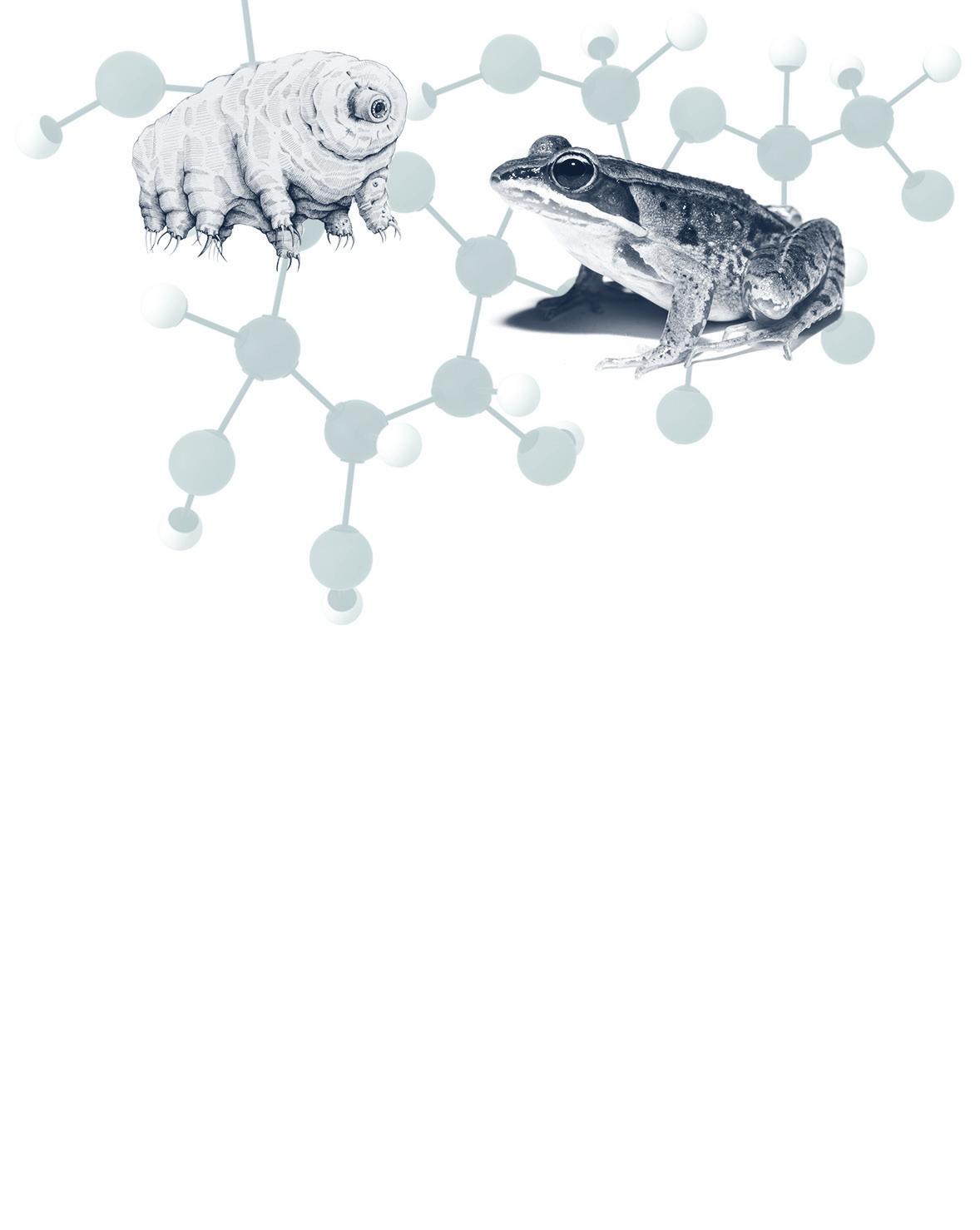


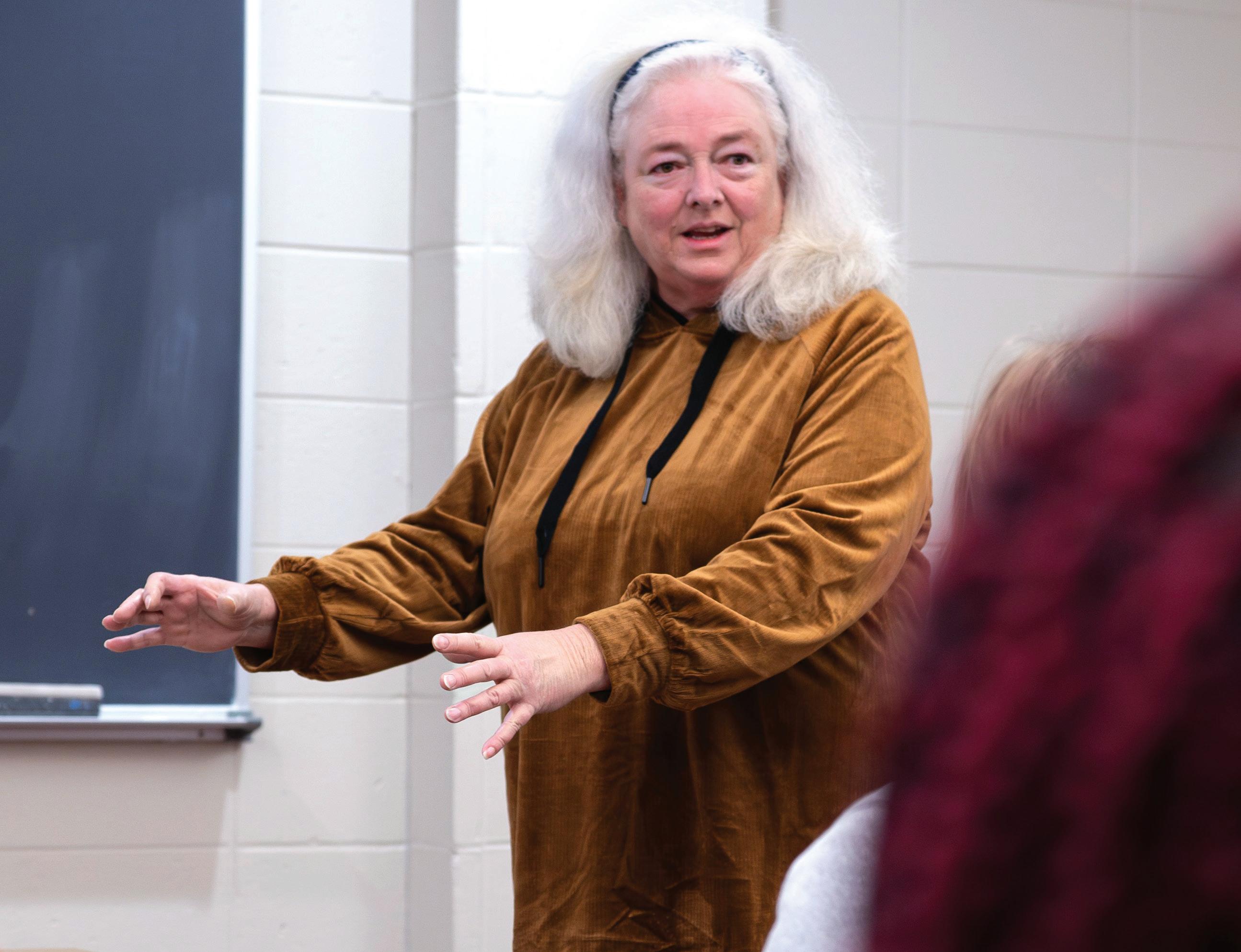
Several years before Korean popular music (K-pop) groups BTS and Black Pink became household names in America, Professor of Communication Jody Roy began occasionally using an earlier generation of K-pop artists as teaching examples of cross-cultural communication strategies.
On recommendations from students and her daughter, she explored other South Korean music genres, like K-HipHop and Trot.
“Thanks to some of the young people in my life, I was swept up in the ‘Korean wave’ in popular culture long before I learned the actual term for that phenomenon is ‘Hallyu,’” Roy says.
Hallyu, or the Korean Wave, refers to the global dissemination of South Korean popular culture. Hallyu began sweeping across Asia more than 20 years ago. It first crashed into most Americans’ awareness in 2012 when K-pop star Psy’s song “Gangnam Style” dominated the music charts.
In recent years, Hallyu has captured the world’s attention. The 2019 South Korean film “Parasite” swept awards internationally. A year later, the South Korean drama “Squid Game” became — and remains — the most-watched program on Netflix and the mostwatched series in 94 countries.
The first season of “Squid Game” has earned more than $900 million USD. That impressive figure is dwarfed by the earnings of the K-Pop music industry; mega-group BTS alone generates an estimated $5 billion USD annually. South Korean companies are not the only beneficiaries of Hallyu. Corporations worldwide now hire South Korean celebrities to serve as brand ambassadors because the marketing value of Hallyu drives sales of everything from American fast food to European luxury cars.
“Hallyu is an excellent case study of the ways major corporations and individual creators strategically communicate to make their

products, services and content accessible and appealing to consumers around the world,” Roy says. “Understanding those strategies is valuable for any student whose future career will involve communicating with complex global audiences.” Thus, she created a new elective course, Communication 300: The Korean Wave as Global Communication.
As a group and through individual projects, the class analyzed the communication strategies propelling increased global demand for South Korean automobiles, technology, tourism, beauty products and fashion brands, as well as “K-content,” from K-Pop and K-HipHop music, to K-drama television series, webtoons and films. The class examined how South Korean companies have leveraged emerging communication technologies to reach ever-wider and more diverse audiences. Students also dissected specific communication tactics that fuel the growth of South Korean celebrities’ vast international fan communities. In combination, the K-Pop group Black Pink and its four individual members’ accounts reach more than 380 million followers on Instagram alone. Such vast audiences are highly prized target markets for advertisers around the world.
In the year leading up to the start of the class, Roy closely followed the social media accounts of dozens of South Korean music idols and media stars, noting patterns in their posts that helped make them accessible to followers across language barriers and cultural differences. Shortly before the class was to begin, Bloo, a rapper, shared an image of an illustration that especially captured Roy’s attention. She followed the tag @goosekim to learn more about the artist.
Goose Kim is the artist name of Ruthy Kim, a Korean-American illustrator based on the West Coast. Although Roy did not know it at that time, Ruthy is Bloo’s sister. Roy ordered prints of a few Goose Kim illustrations. The new class was well underway when Roy reached out to Ruthy with a question: would you have any interest in creating an illustration of my class as a keepsake for the students?
“Typically, people in the art industry reach out to me for work,” Ruthy recalls. “So this request was different from the usual work emails. It was also intriguing to see that


The different aspects of all of us that were within the picture made it really meaningful and touching. I thought the class was really special and unique because it was a class unlike any I’ve ever taken.”Isabella Cuttill ’25, oshkosh, wisconsin


I was stunned at how recognizable everyone was” in the artwork. The class “sparked many interests that some of us didn’t know we had.”
Keon McNair ’24, las vegas, nevada
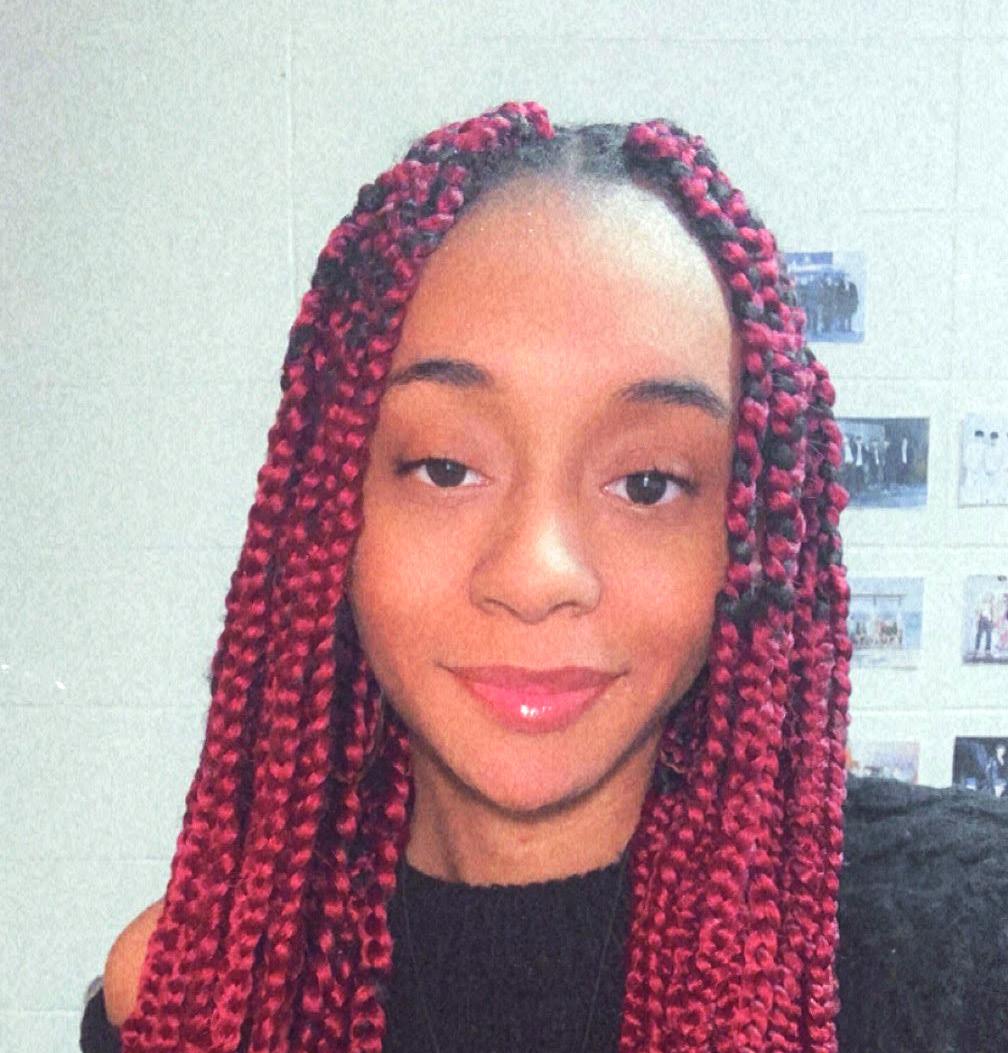
“I looked at it for a little bit at first and then I started looking at faces and realized one of them was me. I literally said, ‘IT’S ME!’ I then began to tear up because it meant a lot to me.”
Aaliyah Robinson ’25, chicago, illinoisHallyu was being taught in a college here in the U.S. Overall, I found it to be such an interesting project.”
One day, Roy took photos of the class without offering any particular reason. The students remember thinking it a bit odd, but soon forgot all about it. They did not realize Roy and Ruthy were conspiring to surprise them.
Ruthy explains, “I tried to accurately capture the students’ hair and eye color shades while incorporating their individual fashion styles. Jody provided an excellent breakdown of each student’s outfits, characteristics, research themes, and personalities. I studied each student, matching Jody’s descriptions with their photos, and imagined their personalities as I drew!”
Late in the semester, toward the end of a session devoted to how visual images, including artwork, transcend language barriers, Roy shared the story of how she had acquired a print by Goose Kim after discovering the artist’s work through Bloo’s Instagram page. She showed the students her framed print of “The Boy and The Whale.” Then she passed out sealed manila envelopes. “The students looked


“There never was a thought in my mind that something this special would come out of this class. This was one of my favorite classes that I took at Ripon because of all of the ways we connected, including this image. What a fun ride!”
so confused, nervous even. I think a few feared it was a pop quiz,” Roy recalls. She asked them to open their envelopes at the same time.
Roy captured the moment on video, happy tears and all, including the students shouting “Thank you, Ruthy!” after Roy assured them they were holding their very own Goose Kim creations. She sent the video to Ruthy after class.
“When I first watched the video, I remember saying, ‘AWWHHHHHH,’” Ruthy says. “It was heartwarming. Connecting with the students through the project felt really cool, and because I had spent so much time looking at their photos, it felt like I already knew them!”
Class students included: William Braznell ’25 of Palatine, Illinois; Isabella Cuttill ’25 of Oshkosh, Wisconsin; Tailey Grogan ’23 of Milton, Wisconsin; Citlali Marquez ’24 of Holyoke, Colorado; Evan McAfee ’24 of Peoria, Illinois; Keon McNair ’24 of Las Vegas, Nevada; Molly Montgomery ’24 of Sheboygan, Wisconsin; and Aaliyah Robinson ’25 of Chicago, Illinois.
Molly Montgomery ’24, sheboygan falls, wisconsin

To learn more about Ruthy Kim, view her portfolio at ruthykim.com. Her Instagram handle is @goosekim.
(Photo and artwork courtesy of Ruthy Kim)


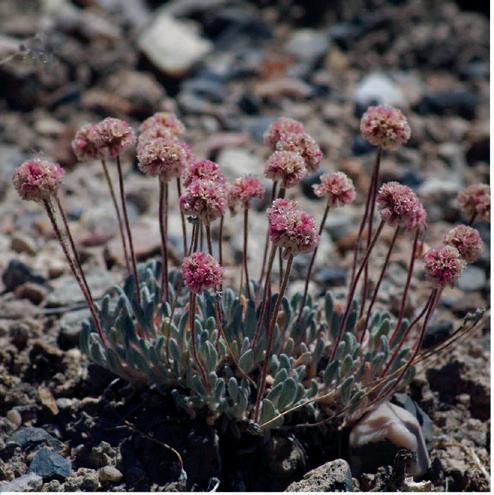


summer of doing specialized research on the Ripon College campus was capped with a trip to Colorado to do active research in the western part of the United States and to connect with botany specialists.
Alex LaFleur ’24 of Berlin, Wisconsin, and Natalie McNeely ’25 of Neenah, Wisconsin, worked with Ben Grady through the Summer Opportunities for Advanced Research (SOAR) program. Grady is an associate professor of biology and director of the Environmental Studies program.
LaFleur and McNeely both are majoring in biology as well as environmental studies. At Ripon, the students examined various pollinators and prairie plant species. In August, Grady took them along to Salida, Colorado, when he attended the annual scientific meeting of the Eriogonum Society. The members of this national group specialize in the study of Eriogonum, the genus of flowering plants known as wild buckwheat. Grady is the president.
Along the way, they camped out, did field research and helped collect specimens for Grady’s Eriogonum research at sites in Kansas and Colorado to look at other populations of these plants growing in unusual places.
Grady taught a workshop on how to identify the plants in this genus, the group took field trips into the mountains around the area, and attendees interacted and shared knowledge with professional
botanists, conservation biologists, rock gardeners and academics.
“The students got to see others out in the field, I could show them what happened at these types of meetings and they could learn more about my research,” Grady says. “I was able to introduce them to that type of research. Some of the plants we saw out in Colorado are very rare. We observed and collected data on other interesting plant species. The students got a sense of what field botany in the West is like — which is very different from the Midwest.
“I wanted to give the students this experience because this was really important for me,” Grady says. “Being able to go out and do field botany in the American West is part of why I do what I do today.
“Alex and Natalie worked hard, and it was helpful for me and nice to have an extra pair of hands. They got to meet other people in the field, make connections and learn what this field of Western botany is like. They were exposed to something they are both interested in — biology and environmental studies — and this could be something that they will do in the future.”
McNeely agrees. “I learned how to collect and store plant tissues for DNA sampling and adequately collect and press species for Heriborum collections,” she says. “In the future, I am looking at pursuing a career in a botany-based field, and this specific trip gave me a lot of insight into what opportunities and potential jobs there are within this field. I also gained a better appreciation for Western plants, and I talked with various people who helped me realize that grad school is the next step I want to take in my career path.”
SALLY LOU ROBERTS DUMAN of Port Washington, Wisconsin, who attended Ripon in the 1940s, died Sept. 16, 2023. She attended Ripon and received a degree in occupational therapy from Marquette University and a later degree from the Milwaukee School of Engineering. She worked as an occupational therapist and a court clerk at Ozaukee County Circuit Courts Branch 2. In the early 1960s, she became the first female customer service representative for Wisconsin Electric, serving five townships, and was office manager for more than 30 years. She was a member of Delta Phi Sigma, Veterans of Foreign Wars 5373 Auxiliary and Port Washington Senior Center, and was past Worthy Matron of Eastern Star Ozaukee Chapter 147. She enjoyed many winters in Texas and was proud of her Scottish heritage. Survivors include three children.
ROSEMARY MIDDLETON MOLINARI ’44 of Wilmette, Illinois, died Dec. 31, 2012. At Ripon, she majored in English and drama and participated in Alpha Phi/Kappa Sigma Chi. She enjoyed the written word, knitting, card games and all things sport. Survivors include one son and one daughter. Her husband MADEO “MOON” MOLINARI ’43 , died in 2011.
CHARLOTTE SALVERSON EWALD ’48 of Fitchburg, Wisconsin, died Sept. 22, 2023. At Ripon, she majored in history and was a founder of Alpha Delta Pi/Pi Tau Pi. She received a master’s degree in library science from the University of WisconsinMilwaukee. She taught at St. John’s, a military boarding school in Delafield, Wisconsin, and the Orthopedic School at the University of Wisconsin Hospital. She also served as an assistant librarian at Frank Allis Elementary School and then head librarian at Ray F. Sennett Middle School in Madison. She also served on the Book Selection Committee for the Madison school system. She enjoyed Elderhostel courses, traveling, crossword puzzles baking, antiquing and being active in numerous activities in her church. Survivors include two daughters.
BARBARA CRESS GRANDY ’48 of Chetek, Wisconsin, died May 10, 2023. At Ripon, she majored in chemistry and was a member of Alpha Delta Pi/ Pi Tau Pi. She was a longtime member of the City of Chetek Planning Commission and also served on the board of directors for the Chetek Library. She was an avid golfer and was active in several bridge groups. Survivors include two sons.
ANNA F. MCLEAN MATHY ’49 of Woodridge, Illinois, died Jan. 31, 2015. At Ripon, she majored in biology and participated in Alpha Phi/Kappa Sigma Chi. She earned a degree in nursing from Cook County School of Nursing. Survivors include two sons and four daughters.
EARLE W. GARBER ’50 of Wisconsin Rapids, died Oct. 27, 2023. He attended Ripon and DePaul
University. He managed industrial sales in the family distributorship for 35 years, then worked in marketing with Duriron Corp. in Dayton, Ohio. As a volunteer, he coached brass students in band and directed the American Legion Drum Corp. He was a performer with the city band and a board member of the Wisconsin Writers and the Central Wisconsin Symphony Orchestra. He also was active in the Rotary Club, United Way, Heart of Wisconsin Chamber, Community Foundation, Wood County Economic Development Board and the Wisconsin Rapids Redevelopment Authority. Survivors include his wife, Peggy; and five children.
LYNN HANSON ’50 of Brooklyn Center, Minnesota, died Nov. 2, 2023. At age 17, he enlisted in the U.S. Navy during World War II. After his service, he attended Ripon College and then graduated with honors from the Minnesota School of Business in 1950. He worked for Gamble Skogmo for 43 years, as an auditor, chief accountant for nine years and vice president of finance and controller of the Gamble Division. He enjoyed sports and was one of three people to represent Minnesota in the National All Star Match Game Bowling Tournament in Chicago in 1950. He participated in bowling, golf, tennis, water volleyball, table tennis, pool and horseshoes. He also was active in volunteer work. Survivors include one son and one daughter.
JUNE M. ULLMAN KLOSS ’50 of Green Bay, Wisconsin, died Nov. 11, 2021. At Ripon, she majored in Spanish and participated in Ver Adest and Alpha Phi/Kappa Sigma Chi. Survivors include one son, ROBERT A. KLOSS ’82 ; and two daughters.
CONSTANCE JONES MALONE ’50 of Centennial, Colorado, died Oct. 9, 2021. At Ripon, she participated in Ver Adest and Alpha Delta Pi/ Pi Tau Pi. She received a degree in journalism from the University of Michigan in Ann Arbor and master’s degrees from the University of Colorado Boulder and the University of Denver. She was an English and journalism teacher at Arapahoe High School and Euclid Junior High School. During her retirement, she educated and befriended men in jail who aspired to earn their GED. She enjoyed culture, literature and journalism, and was an avid traveler. Survivors include five children.
GORDON M. SUCKOW ’50 of Fernandina Beach, Florida, died Nov. 4, 2023. At Ripon, he majored in economics and participated in Ver Adest and Phi Delta Theta/Alpha Phi Omega. He earned his MBA degree from Harvard Business School. He served in both the U.S. Navy and Air Force and was an executive at the Northern Trust Company in Chicago for almost 40 years. In retirement, he spent portions of winters first in South Carolina and then half a year in a second home in Green Valley, Arizona. He enjoyed sailing, primitive
camping, playing bridge, classical music and following the Green Bay Packers and Chicago White Sox. Survivors include one son and one daughter; a nephew, DAVID DOMAN ’79 ; and a niece, MARGARET BAYER WALKER ’83 . His wife, DIANA DOMAN SUCKOW ’49 , died in 2016.
MCCLEMENTS ’52 of Knoxville, Tennessee, died Jan. 8, 2024. At Ripon, she majored in English and participated in Ver Adest and Alpha Delta Pi/Pi Tau Pi. She did administrative support and customer service work for 40 years. She was an avid reader and enjoyed crossword puzzles. She was a member of Concord United Methodist Church and the Lydia Circle. Survivors include two daughters.
WILLIAM H. ANDERES ’53 of Cresskill, New Jersey, died Sept. 29, 2023. After attending Ripon, he transferred to the University of Illinois UrbanaChampagne in order to enroll in Air Force ROTC. He graduated with a degree in microbiology. During his time in the service, he was trained in flight. After the service, he was employed at American Cyanamid until retiring as director of purchasing in the Agricultural Division in 1991. He earned his private pilot license after he retired, enjoyed attending air shows and was an active member of the Experimental Aircraft Association and its Young Eagles program. He loved classical music and writing poetry. Survivors include two daughters.
CHARLES H. BRINTLINGER ’53 of Lake Barrington, Illinois, died Sept. 27, 2023. At Ripon, he majored in economics and participated in athletics and Phi Delta Theta/Alpha Phi Omega. He earned a degree in civil engineering from Northwestern University. He spent three years in the Marine Corps, stationed in Las Vegas, Nevada. He worked as an engineer for Cook County, managing road construction; with IBM for 25 years as a systems engineer; and taught at IBM schools in New York, Florida, Texas and California. He enjoyed running 10K and marathon races, biking, swimming, lifting weights, and spending winters in Marco Island and Naples, Florida. Survivors include his wife, Patricia; one son and two daughters; and several stepchildren.
JOHN O. FRISVOLD ’53 of Naples, Florida, died Sept. 11, 2023. At Ripon, he majored in economics and philosophy, lettered in track and cross country, was editor-in-chief of College Days, was a member of Phi Kappa Pi (Merriman), and was commissioned through ROTC. He served in the U.S. Army at Fort Benning, Georgia, and attained the rank of Captain. He served as a vice president at 3M, traveling the world and providing leadership. After retiring, he moved to Naples, Florida, and was involved with many social and philanthropic organizations. Survivors include his wife, Marti Frisvold; three sons and two daughters,
including LYNN FRISVOLD WILLIAMS ’80 ; and a son-in-law, SETH WILLIAMS ’81 . His first wife, ROSEMARY GOULET FRISVOLD ’53 , died in 1978.
DONALD W. HURLBURT ’53 of Plymouth Wisconsin, died Oct. 21, 2023. At Ripon, he majored in economics and participated in Lambda Delta Alpha/Delta Upsilon. He served in the United States Marine Corps during World War II before attending Ripon. He received his master’s degree from St. Cloud State Teachers College. He was an active member of Salem United Church of Christ in Plymouth. He enjoyed traveling, reading and spending winters in South Carolina with his family. Survivors include one son and one daughter.
GERALDINE “GERRY” SCHMIDT
KRUMWIEDE ’53 of Park Ridge, Illinois, died May 3, 2022. At Ripon, she majored in English and participated in Ver Adest and Alpha Phi/Kappa Sigma Chi. She assisted at the family business, C-Line Products. She was an active member of Park Ridge United Methodist Church, the 20th Century Club and Park Ridge Junior Women’s Club. She was a benefactor of the Park Ridge Civic Orchestra and enjoyed golf, bridge, gardening and reading. Survivors include two sons and one daughter.
MARVIN W. PRELLBERG ’53 of Gilbert, Arizona, formerly of Arlington Heights, Illinois, died Jan. 4, 2024. At Ripon, he majored in economics and participated in College Days, athletics and Phi Delta Theta/Alpha Phi Omega, and was commissioned through ROTC. He served for two years in the Army before working in sales for the petroleum industry and being active in professional organizations. His final position was with Marathon Oil for 25 years, and he retired in 1992. He retired to Peachtree City, Georgia, then Gilbert, Arizona in 2021 to be near his children. He was active in community service through his church, Kiwanis programs in the community and local schools, VFW, and coaching youth sports. He enjoyed golfing. Survivors include two sons and two daughters.
RONALD D. DAWSON ’54 of Canastota, New York, died Aug. 9, 2023. He retired from IBM after more than 25 years. Upon his retirement, he became the co-owner and operator of Artistic Framing in Clay, New York. He was an avid golfer and cook. Survivors include his wife, Leslie; and two sons.
WILLIAM R. DONALDSON ’54 of Wheaton, Illinois, died Aug. 4, 2023. At Ripon, he majored in economics, participated in Ver Adest, athletics and Sigma Alpha Epsilon/Delta Sigma Psi, was a Kemper Scholar in economics and was commissioned through ROTC. He served as an Air Force captain and pilot during the Korean War. He worked as product manager for Proctor & Gamble in Cincinnati, director of public relations for Quaker
Oats in Chicago, and president of Theodore Sills in New York City. His clients included Coca-Cola, Gillette, Proctor & Gamble and AT&T. In Wheaton, he was an active 50-year member of Wheaton Drama Inc. He enjoyed traveling throughout the world, continuing travels into his 80s. He also loved automobiles, old and new. Survivors include two sons and one daughter.
JACK C. BLOEDORN ’55 of Terry, Mississippi, died April 10, 2020. At Ripon, he majored in mathematics and economics and participated in athletics, Phi Kappa Pi (Merriman) and Phi Beta Kappa. He received an MBA from the University of Pennsylvania and a Ph.D. in management from Northwestern University. He served as regional finance officer for the U.S. Army, stationed at Fort Totten, Long Island, New York; systems analyst for Eastman Kodak Co., Rochester, New York; and administrative manager for Booz Allen & Hamilton in Chicago, Illinois. He also founded and was president/ CEO of Management Systems Corp., a consulting company. He taught management at the University of Wisconsin, DePaul University, Northwestern University, Mississippi State University and Jackson State University; and wrote the book Designing Social Service Systems. Survivors include his wife, Judy Maxey Bloedorn; and two sons.
FREDRIC E. ROEMING ’55 of Green Valley, Arizona, died in August 2023. At Ripon, he majored in economics and participated in music, athletics, Lambda Delta Alpha/Delta Upsilon and Red Hawks Club, and was commissioned through ROTC. He received his master of business administration degree from Indiana University Bloomington. He served in the U.S. Army for 29 years, retiring as a lieutenant colonel. After retiring, he lived in Monument, Colorado, for 20 years, then moved to Green Valley. He sang in choral groups his entire life and enjoyed the Green Bay Packers. Survivors include two children and eight grandchildren, including AUSTIN OLIVER ’14
RITA RAFAJKO LAZARUS ’56 of Chattanooga, Tennessee, died Sept. 16, 2023. At Ripon, she majored in English and participated in Alpha Phi/Kappa Sigma Chi. During the 1950s, she served as a flight attendant with American Airlines. She and her husband, Richard I. Lazarus, lived in San Salvador, El Salvador, where he worked for the U.S. International Cooperation Administration; then Midland, Michigan; then Chattanooga in 1966. She enjoyed the arts, entertaining, reading, gardening, travel and humor. Her favorite flowers were lily of the valley and Maine’s lupine. Survivors include two sons.
RUBEN RODRIGUEZ-YEJO ’56 of Wilmington, Delaware, died Oct. 17, 2023. He attended Ripon College, the University of Puerto Rico and The Episcopal Theological Seminary in Puerto Rico. He served in the United States Air Force and worked for Brandywine Counseling Inc.
ORVILLE SWANSON JR. ’56 of Markesan, Wisconsin, died Dec. 23, 2023. He grew up in Green Lake and attended Ripon for one year before
entering the Navy in 1953. He served 10 years, working on naval communications stateside and in Guam, Japan and Turkey. He lived in Richland Center, Wisconsin, for 44 years, for 30 years as a switchman with General Telephone Company and Verizon. He returned to Markesan in 2008 and was a member of St. John’s Lutheran Church, Abendroth-Connolly American Legion Post 282 and the Markesan Historical Society. Survivors include his wife, Ardelle; and two sons.
WILLIAM C. MUELLER ’57 of Downers Grove, Illinois, died Nov. 4, 2021. At Ripon, he majored in mathematics and participated in Theta Chi/ Alpha Omega.
JOHN M. STEENPORT ’57 of Chilton, Wisconsin, died Aug. 18, 2023. At Ripon, he studied economics. He received a master’s degree in finance from Indiana University Bloomington. He served in the U.S. Navy and was employed by American Electric Power.
EDWARD P. “TOBY” COLDWELL ’58 of Wausau, Wisconsin, died Nov. 25, 2023. At Ripon, he majored in economics and psychology, participated in athletics and Sigma Chi/Omega Sigma Chi, and was commissioned through ROTC. He served for two years as a first lieutenant in the U.S. Army in Portland, Oregon. He worked for Wausau Insurance for 35 years: as a group health representative in Kansas City, Missouri, sales representative in Waterloo, Iowa, and sales coordinator, educator and assistant vice president of sales at the home office in Wausau. He enjoyed time in a cottage on Hiawatha Lake and traveling in their motor home. He supported the Boys and Girls Club in Wausau. Survivors include his wife, Darlene; and three sons, including E. JAY COLDWELL ’79 .
ELAINE PETERSON CODDINGTON LAMPORTE ’58 of Long Lake, New York, died Sept. 13, 2023. At Ripon, she studied English and art and participated in Alpha Xi Delta/Kappa Theta. For 22 years, she moved often with her first husband, FLOYD L. CODDINGTON ’56 , who was in the military. They lived in Manassas, Virginia, for several years, then Long Lake, New York, since 1985. There, she assisted in running Coddington’s Boathouse marina and worked as a librarian at Long Lake Central School. Floyd Coddington died in 1990.
ROBERT C. PIETSCH ’58 of Monument, Colorado, died Oct. 24, 2021. At Ripon, he studied biology, participated in Lambda Delta Alpha/Delta Upsilon, and was commissioned through ROTC. He received a master’s degree in international affairs from George Washington University. He served in the U.S. Army.
DAVID C. VILAS ’58 died July 30, 2023. He graduated from the University of Alabama. He served in the Air Force Reserves and was the great-grandson of Civil War Gen. N. Martin Curtis. He was a manufacturer’s sales representative for several different companies as well as his own, then worked in real estate upon retirement. He
volunteered at his church and in community groups. He enjoyed sailing, fishing, golfing and bird watching. Survivors include two daughters.
DAVID L. MIRISCH ’59 of Jaco, Costa Rica, died May 7, 2023. At Ripon, he majored in speech communication, was president of the Student Union Board, was a member of Theta Chi and the tennis and bowling teams, and served as head cheerleader. He also was a Class Agent for several years. He was a member of the Mirisch Film Company that has produced 72 feature films, winning 28 Academy Awards and Three Best Picture awards. Independently, he was a Hollywood press agent, working with thousands of high-profile celebrities. His David Mirisch Enterprises, a promotional firm, produced more than 2,500 celebrity events that raised more than $35 million for nonprofit causes. Survivors include his wife, Sandra; one son and two daughters.
THOMAS WILLIAM “BILL” PATRICK ’59 of White Bear Lake, Minnesota, died Nov. 4, 2022. At Ripon, he majored in economics and participated in athletics. He was a successful businessman and a member of the White Bear Township Planning Board for 38 years. He was a nature enthusiast and enjoyed spending time outdoors. He enjoyed skiing, sailing, golf and tennis. Survivors include his wife, Cecilia; and three daughters.
RAYMOND A. VANDE MOORE ’59 of Naples, Florida, died Nov. 17, 2022. At Ripon, he majored in economics, played varsity tennis for three year, participated in Sigma Chi/Omega Sigma Chi, and was commissioned through ROTC. He served as a captain in the U.S. Army and then was self-employed, working as a manufacturers’ sales representative until retiring. He enjoyed playing tennis, golf and bocce ball, and was a lifelong avid Green Bay Packers fan. Survivors include three sons.
LORETTA HOUSE WEBSTER ’59 of Oneida, Wisconsin, died Aug. 1, 2023. At Ripon, she studied biology and was a member of Alpha Xi Delta/ Kappa Theta. She received a law degree from the University of Wisconsin-Madison in 1988. She grew up on the Oneida Indian Reservation. She served as vice chancellor of the University of Wisconsin-Stevens Point and went on to work for the Oneida Nation as the attorney for the land office. She enjoyed creating and teaching raised beadwork, and reading. She was a founding member of the Woodland Indian Art Show and Market and advocated for Indian rights. Survivors include her husband, Stanley Webster; two sons and one daughter.
TERESA “TERRY” HALL KUEHLWEIN
’61 of Delaware died Aug. 16, 2023. At Ripon, she majored in art. She also attended the Kansas City Art Institute and worked for Hallmark cards. She also worked at a medical answering service, cared for an elderly neighbor, and did sales at Macy's. Her husband had served in the U.S. Army and they lived in several places before settling in Wilmington, Delaware. Survivors include two sons and one daughter; a sister CATHERINE HALL GANT
’57; and a niece, STEPHANIE ADAMSKI HALL ’82 . Her husband, ROBERT E. KUEHLWEIN ’58 , died in 2002.
JEAN DRING VESELENAK ’63 of Rogers City, Michigan, died Sept. 27, 2023. At Ripon, she majored in psychology and educational studies and participated in student government and Alpha Phi/Kappa Sigma Chi. She taught grade school in Flint, Michigan, and Rogers City, Michigan. She also was instrumental in the founding of the Presque Isle County Historical Museum, was a founding member and president of Rogers City’s Ecology Club and started the area’s first recycling program. She had a special passion for the wildflowers and birds of Michigan and advocated to protect undeveloped land. Along with fellow members of the Westminster Presbyterian Church, she organized an annual “Hunger Walk” for many years, raising funds to combat world hunger. Survivors include two sons and one daughter.
EDWARD W. “LENNY” “DUKE” LENCHARD ’64 of Tinley Park, Illinois, died Oct. 11, 2023. At Ripon he double majored in history and politics and government and participated in athletics and Lambda Delta Alpha/Delta Upsilon. He was an educator, director/principal and coach of soccer, baseball and wrestling for more than 25 years at Menlo School and College in California. He received the Emerick Teaching Prize. He retired to Tinley Park. He enjoyed gardening, bowling, playing cards, volunteering as a church usher, and his Samoyed, Snow. He was an avid fan of the White Sox, Bears, Bulls and Blackhawks, as well as soccer and softball games. Survivors include a sister, DEBORAH LENCHARD ’75
THOMAS JEFFERSON HAMILTON ’65 of Washington, D.C., died July 19, 2023. At Ripon, he studied art. He received a master’s degree in urban studies from Roosevelt University and a degree in economics from Northwestern University. During the Vietnam era, he served in the U.S. Army as a clerk at the Aberdeen Proving Grounds from 1965-1967. He was a retired computer systems consultant. He worked in IT at the Bureau for Consumer Affairs until 1997 and then worked for a private company. He enjoyed painting, writing poetry and plays, and acting, and had been a director at Source Theatre Co. in Washington, D.C. He also served as a commissioner on the D.C. Advisory Neighborhood Commission and volunteered as an aide at a local primary school.
BETTY HILEMAN ’65 of Santa Fe, New Mexico, died June 2, 2023. At Ripon, she majored in English. She was involved in social activism, advocating for women’s rights, queer rights, rights of disabled people, racial equality and workers’ rights. She was a therapist for the U.S. Army, treating active duty Army and Air Force personnel who had seen action in the Vietnam War; organized the statewide Critical Incident Stress Debriefing (CISD) program for emergency responders and continued to volunteer for that program for 19 years; was manager of the SSI Disabled Children Program, a bureau chief, director of the State Center for Health Statistics and State Registrar of Vital Records. She
enjoyed hiking, camping, canoeing the Rio Grande, opera, the Desert Chorale, museums and attending lectures and presentations.
BENJAMIN W. JOHNSON ’66 of Eagle, Wisconsin, formerly of Racine and Middleton, Wisconsin, died Dec. 14, 2023. He grew up in Racine and Green Bay, where he was an accomplished athlete in football, basketball and track. He also attended Marquette University Dental School before earning a degree in pharmacy from the University of Wisconsin-Madison. A fourthgeneration pharmacist, he worked at Trinity Memorial Hospital in Cudahy, St. Luke’s Hospital in Racine and St. Mary’s Hospital in Racine, where he also served as systems manager. He shared his faith through men’s ministries and Bible studies. He also enjoyed playing and watching sports, especially the UW Badgers. Survivors include his wife, Dale; two sons and one daughter.
DONALD F. SCHOFIELD ’66 of Amarillo, Texas, died Dec. 2, 2023. At Ripon, he majored in history and economics and was commissioned through ROTC. He received his law degree from The University of Texas at Austin and a Master of Arts in history from West Texas State University. He served in the U. S. Army (JAG), with a tour in Vietnam. He served as a city judge in Amarillo and practiced law in the panhandle of Texas until retirement. He also had several Christian novels published, with another about to be published at the time of his death. He was an active member of Saint Stephen Church. Survivors include his wife, Connie; one stepson and one stepdaughter.
WILLIAM K. OLIVIER ’67 of University Park, Florida, has died. At Ripon, he majored in politics and government and was commissioned through ROTC. He received degrees in law and judicial administration from the University of Denver. He spent 25 years in the federal civilian service, 18 of which was with the Department of Justice, and another four years with the Army Corps of Engineers for a total of 29 years of federal service.
JOHN B. HENDERSON ’68 of Naples, Florida, died Nov. 2, 2023. At Ripon, he studied economics, participated in Sigma Alpha Epsilon/Delta Sigma Psi and was commissioned through ROTC. He earned his MBA from the University of South Florida and served in the U.S. Army. He had a long career as a portfolio manager and relocated to Naples in 1996, where he continued his career at Merrill Lynch Investment Management as vice president, senior portfolio manager. He was well-known as an advisor to other financial advisors and helped advance many young advisors until he retired in 2006. He split his time between a home on Dark Harbor, Islesboro, Maine, and Naples, Florida. He enjoyed fishing, art, antiques, travel and shopping.
ALAN D. LONG ’69 of Green Bay, Wisconsin, died Aug. 7, 2023. At Ripon, he majored in biology and participated in athletics and Phi Delta Theta/ Alpha Phi Omega. He taught at Annunciation Catholic School and then worked in commercial interior
sales and management. He was active in athletics his whole life. At Ripon, he played a key role on two Midwest Conference Championship football teams as a running back. He set several school records, and his mark of the most rushing touchdowns in school history stood for 25 years. He was inducted into the Athletic Hall of Fame in 2014. As an adult, he played AAA Fastpitch and golf. He loved the outdoors, trout fishing, and bird and deer hunting. Survivors include his wife, Kathy Long; and two children.
JAMES C. SPOTTS ’69 of Cape Coral, Florida, died Jan. 2, 2023. At Ripon, he majored in economics and participated in athletics and Sigma Nu/Theta Sigma Tau. He previously lived in Islamorada where he was a dive boat captain and dive instructor. He lived in the Keys from 1995 until his move to Cape Coral. Survivors include two sons.
JAMES M. HINTZ ’72 of Salem, South Carolina, died Sept. 28, 2023. At Ripon, he majored in psychology and participated in athletics and Sigma Nu/Theta Sigma Tau. He had been a mechanical engineer at the Science and Arts Academy. He was an avid golfer and an accomplished guitarist.
PHILIP B. HANSON JR. ’74 of Hales Corners, Wisconsin, died Aug. 4, 2023. At Ripon, he studied economics, played football and was a member of Phi Kappa Pi (Merriman). His career was in the food industry, ultimately succeeding his father as president of Hanson Sales and Marketing. He enjoyed watching football, golfing, and vacationing at Lido Beach in Sarasota, Florida. Survivors include one son and one daughter.
LINDSEY RAY INMAN ’74 of Duncanville, Texas, died Sept. 14, 2023. At Ripon, he majored in biology and psychology and participated in Lambda Delta Alpha/Delta Upsilon and the Beta, Beta, Beta honor society. He served in the U.S. Army as a biological sciences assistant in the Department of Experimental Pathology at Walter Reed Army Institute of Research. He also qualified as an Expert in both M-16 Rifle and Hand Grenade and received the Army Good Conduct Medal and the Army Commendation Medal. After earning a Ph.D. in experimental pathobiology from the Medical University of South Carolina, was a researcher and clinical scientist at the Dallas Department of Veterans Affairs Medical Center. Survivors include his wife, Mary; and one daughter.
DENNIS S. PORDON ’74 of Delafield, Wisconsin, died July 10, 2023. At Ripon, he majored in economics and participated in football, baseball and Phi Delta Theta/Alpha Phi Omega. He worked for more than 40 years as an investment banking and business professional. He enjoyed the outdoors and all things sports, particularly playing golf and pickleball. He was a member of Divine Redeemer Lutheran Church for more than 30 years, actively involved in the men’s ministry and Christian Athletic
Scholarship Foundation. Survivors include one son and one daughter; and a sister-in-law JOAN UETZMANN LEROY’74 . His wife, JEAN UETZMANN PORDON ’77 , died in 2017.
DAVID M. TACKE ’76 of Brown Deer, Wisconsin, died March 16, 2023. He earned a bachelor’s degree in history from the University of Wisconsin-Milwaukee and a master’s degree in computer science from Cardinal Stritch University. He owned DMT Software Services LLC. He was active in numerous groups and organizations, including Mensa, Wisconsin Business Owners, SF1 Science Fiction Book Club, Wisconsin politics, and Toastmasters, of which he was a member for nearly 30 years. He was an Esperanto enthusiast and was studying the Ukrainian language. He was a member of Christ Alone Evangelical Lutheran Church.
SUSAN RIGLER PALMER ’79 of El Dorado Hills, California, and Scottsdale, Arizona, died Nov. 3, 2023. At Ripon, she majored in educational studies and French, studying abroad in Paris, participated in Parallax and Alpha Delta Pi/Pi Tau Pi, and was elected to Homecoming Court her sophomore year. She also served on the Alumni Board of Directors and on several reunion committees. She studied at McGill University in Canada and other schools. Her work positions included teaching French at Harker Academy in San Jose, California, and French and English as a second language during summers at Shattuck-Saint Mary’s, a private school in Fairbault, Minnesota. She and her family traveled extensively. Survivors include her husband, Jon; and one son.
TERRANCE D. HUBERT ’80 of Holmen, Wisconsin, died Nov. 8, 2023. At Ripon, he majored in chemistry and participated in Sigma Nu/Theta Sigma Tau. He earned his doctorate in organic chemistry at the University of Iowa in 1985. He was a chemist for the United States Geological Survey Department of Fisheries in La Crosse Wisconsin, retiring in 2017. His work was published in several scientific journals, and his work addressed controlling the sea lamprey and Asian carp population in Midwest waterways. He was an accomplished guitarist and vocalist, possessing a beautiful tenor voice. He loved the Green Bay Packers, the Boston Bruins, Iowa Hawkeyes football and basketball, golfing, fishing, and the music of John Denver.
ROBERT D. BLUETT ’82 of Athens, Illinois, died Nov. 5, 2023. At Ripon, he majored in biology and participated in Parallax. He received a master’s degree in wildlife management from the University of Wisconsin-Stevens Point. He worked at the Caesar Kleberg Wildlife Research Institute in Kingsville, Texas, before beginning a 28-year career with the Illinois Department of Natural Resources Division of Wildlife. He led the Furbearer/Wildlife Diversity Program, helping to restore wildlife populations that had become depleted; set rules to regulate the sustainable hunting and trapping of furbearers; and oversaw numerous other programs and research studies. He was author/co-author of more than 25 peer-reviewed research articles. He enjoyed hunting and fishing, especially bank poling for
catfish on the Sangamon River. Survivors include his wife, Tammy; and one son.
JEFFREY M. KJOS ’83 of Madison, Wisconsin, died June 4, 2021. At Ripon, he participated in basketball. He also studied at the University of Wisconsin-Milwaukee and Northern Arizona in Flagstaff before he earned his bachelor’s degree in geology and geophysics from UW-Madison. He also earned a certificate in environmental studies. He was an independent travelling painter. He enjoyed the outdoors, nature and wilderness, hiking, fishing, playing disc golf, kayaking, crosscountry skiing, crossword puzzles, Scrabble and gardening, keeping the same community garden plot for more than 20 years. Survivors include his wife, Sara Andrea Arscott; and one son.
PAUL J. MATTICK ’84 of Green Bay, Wisconsin, died Nov. 16, 2023. At Ripon, he majored in biology and participated in Symphonic Wind Ensemble and the Beta, Beta, Beta honor society. He received a degree in pharmacology/pharmacy from the University of Wisconsin-Madison. He worked as a pharmacist at Berlin Hospital (Theda Care Medical Center) and Morton Pharmacy. Survivors include his wife, Pam; four children and stepchildren; and a sister, SUSAN MATTICK ATTOE ’78 .
TODD C. OSADJAN ’85 of Sarasota, Florida, died Oct. 9, 2023. At Ripon, he studied economics and participated in athletics, club rugby and Phi Delta Theta/Alpha Phi Omega. He excelled at many sports including baseball, football and golf. He joined the family business, Crusty Louie’s restaurant in Sarasota, and became sole owner in the 1990s. He was active in the business community and founded an annual golf outing to raise funds for the Make-a-Wish Foundation. In 2005, he sold the restaurant, then worked at renovating and selling homes, real estate sales and limo driving. He loved the Chicago Bears and annual trips to Door County, Wisconsin, to visit family. Survivors include his partner, Terri Manning; one son and one daughter; and siblings, including KEVIN OSADJAN ’82
MITCHELL R. HEISER ’93 of Menomonee Falls, Wisconsin, died Jan. 9, 2024. At Ripon, he majored in physics and participated in Lambda Delta Alpha/Delta Upsilon. He worked for Froedtert for 20 years. He enjoyed Milwaukee Brewers and Green Bay Packers games, playing softball and hanging out with his friends and family. Survivors include his wife, STEPHANIE DIPETRO HEISER ’94 ; and two daughters.
AURORA “RORY” NELSON-SMITH ’99
died Nov. 18, 2023. At Ripon, she had a self-designed major in broadcast journalism with a minor in leadership studies. She participated in WRPN, student government and Alpha Chi Omega/Alpha Gamma Theta. Her career was mostly as a news producer and it took her all over the country: at WFRV-TV in Green Bay and television stations in St. Louis, Atlanta, Washington, D.C., Philadelphia and Kansas City. In September, she moved back to Washington, D.C., to work for Fox 5 News. Survivors include her husband, Rob Smith; and her parents, Rita and Chuck Nelson.
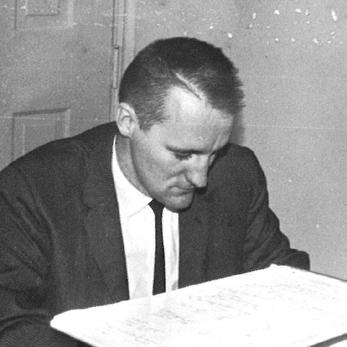 BOBBY GENE
BOBBY GENE
ARROWSMITH
of Lexington, South Carolina, a former assistant dean of men, died Oct. 9, 2023. He served in the U.S. Navy for two years in the North Atlantic. He received a bachelor’s degree in history, a master’s degree in college student personnel administration and his doctorate in higher education from Indiana University in Bloomington. He worked at Ripon College for three years in the 1960s. He joined Bowling Green State University in 1972 and served most of his career as assistant vice president for student affairs, retiring in 1993 as interim vice president. He relocated to Lexington, where he had a small antique business. He enjoyed coaching his son’s little league baseball teams, gardening and refinishing antiques. Survivors include his wife, Kathy; one son and one daughter.
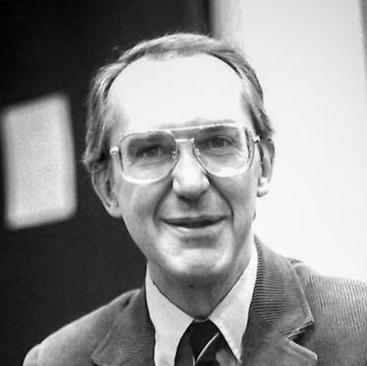
FREDERICK M. BLANK , professor of economics from 1979-2001 and 2006-2010, died Dec. 5, 2023. He received bachelor’s and master’s degrees from Southern Illinois University at Carbondale and master’s and doctorate degrees from Duke University. At Ripon, he was the first director of the Business Management Program and chair of the Business Management Committee. Throughout his career, he also held lecturing positions at academic institutions including Valparaiso University, University of Wyoming in Laramie, University of Wisconsin-Oshkosh and St. Norbert College. In 1984, he was a Fulbright Scholar at the University of Papua New Guinea. He enjoyed the outdoors, fishing, rock and roll and his dogs. Survivors include his wife, Jan Dreger Blank; one son, one daughter, HILLARY BLANK AIKEN ’01 ; one stepson and two stepdaughters.

SCOTT L. SPILLER of Oshkosh, Wisconsin, a former Trustee of Ripon College, died Jan. 25, 2024. He was a member of the Board of Trustees from 2011 to 2017 and served on many committees, including Admissions and Student Life, Advancement, Admissions and Investments. His law career included private practice; corporate law at Winchester Corp. in East Alton, Illinois; and at Alliance Laundry Systems in Ripon as chief legal officer, vice president of human resources and corporate secretary. He worked at Alliance for 30 years before retiring in 2016. He also volunteered for several organizations, including the Boy Scouts, youth football and basketball. Survivors include one son and one daughter.

William R. Stott Jr., Ripon College’s 10th president, of Oak Hill, Virginia, died Feb. 1, 2024, at the age of 88. He served at Ripon College from 1985-1995. He was a retired lieutenant of the United States Naval Reserve and held degrees from Columbia University and Georgetown University, as well as honorary degrees from Fisk University and Georgetown.
Under Stott, Ripon’s endowment nearly tripled. He was responsible for several major renovation projects, including Tri-Dorms, Bartlett, Scott Hall and Farr Hall of Science. Stott taught an English class each semester and led popular classes and tours for the general public on topics such as Shakespeare, the Globe Theatre and bird-watching.
His wildlife art, photography and poetry were published and exhibited at Caestecker Gallery in 1995, and he led tours to the Antarctic, Costa Rica and other exotic locations.
His 2020 collection, “A Way of Knowing: Collected Poems, 1970-2020” (New Academia), was inspired by his lifelong friendships, especially with Charles Edward Hodges, Fr. Timothy Healy, S.J., and Francis Ambrosio, and was edited by his beloved friend Fr. Paul McCarren, S.J.
Other administration positions during his career include serving as vice president and dean of students at Georgetown University in Washington, D.C.; assistant dean of students at Fordham University in New York; and business and management consultant for more than 75 colleges, universities, schools and nonprofit organizations.
He also was a teacher for more than 50 years, teaching college-level courses in the humanities, natural history, biological sciences, poetry, English and American literature, Scripture, philosophy and history. His Scripture series, “The Power of Story,” constitutes an academic major in biblical theology and was delivered numerous times.
He taught ornithology as part of the Fairfax Audubon Society’s Master Naturalist program; served as a director on the boards of the American Birding Association and Chesapeake Bay Environmental Center; was a Fellow National of the Explorers Club; and a published author of books of poetry that included his own sketches and drawings.
Survivors include two sons and three daughters.
He described his time at Ripon as “the happiest and most productive decade of my life.” About his accomplishments he added, “If I deserve any credit, it’s because I recognized the value of the people who are here. They’ve been spectacular in coming forward. I love the people here. I’m proud to have joined this good place at this moment of great growth. Peggy and I will always share in the Ripon College future.”

Alegacy of a passionate love for art and how it complements all aspects of life has been left to Ripon College by the family of Ralph and JoAnn Wickstrom.
Ralph Wickstrom was a professor of physical education and athletic director from 1961 until retiring in 1990. He died Dec. 13, 2019, at the age of 94. JoAnn Wickstrom died Nov. 17, 2022, at the age of 89.
In 2023, the couple’s two daughters donated to Ripon 77 works of art from their parents’ extensive and varied collection. The donation includes several sculptures created by Ralph Wickstrom; two-dimensional pieces including five prints by Francisco Goya, two prints by Georges Rouault, a print by Giovanni Battista Piranesi, and two brass rubbings of grave markers in English churches; numerous books about art; and many notable pieces of African art.
“Dad was a lover of all different kinds of art and everything that was cultural,” says one of the daughters, Lisa Wickstrom O’Dell. “Back when they were building the Storzer gym in 1966 and 1967, my father was the one who pushed for a dance studio to be included. He felt dance was just as athletic as anything else.”
Wickstrom started collecting artwork done by friends and colleagues, expanded into European art while taking students on an art and architecture tour of Europe, was inspired by African art in collections of friends, and finally turned to creating his own works of art after retirement, she


says. He learned his own craft of making metal sculpture in a Ripon way — as Gene Kain, professor emeritus of art, taught his colleague how to weld.
His creations range in size from 12 inches to more than 6 feet, and he completed 350 of them. His sculptures have been featured in numerous Wisconsin galleries and reside in private collections from coast to coast.
Two pieces by other artists from the Wickstrom pieces collection are on view in the Resource Center of C.J. Rodman Center for the Arts; and sculptures personally
“
Before now, the College has not owned any African art, and this donation thus will enable us to celebrate the creativity of people in a much more complete way.”
Travis Nygard Associate Professor of Art History



created by Wickstrom are installed at the President’s House and in Smith Hall. Associate Professor of Art History Travis Nygard, Presidential Spouse and Adjunct Scholar of Art Dick Folse and Adjunct Scholar of Art and Museum Studies Caron Sisko are curating and managing the art collection.
“This donation of museum-quality African art will transform how we teach art history at Ripon College,” Nygard says.
“Before now, the College has not owned any African art, and this donation thus will enable us to celebrate the creativity of people in a much more complete way. The pieces are superb, showing masterful carving, manipulation of clay, and use of shells.” Already this year, Nygard has shown the work to students in a class on the Ripon College Art Collection.

“My parents very much loved their time in Ripon and everything they were able to experience because of Ripon College, and they wanted to nurture that into the future,” says the couple’s other daughter, Beverly Wickstrom. “My parents, my
I all agreed
art
the College would be an excellent way of doing that.”
O’Dell adds, “As my father got older, you could find him in the evening just sitting in our living room and looking around at the pieces he collected, remembering where they had been when they collected them and why they decided that particular piece was important. He believed art completed the package of life.”
JAYE ALDERSON College Editor
The full collection can be seen in the college’s online catalog: ripon.edu/art-collection.
Ripon has had many distinguished and notable visitors through the years, both among our own stellar alumni and illustrious visitors to campus. They have lauded Ripon College and the richly personalized education our liberal arts curriculum provides.
here is a sampling:
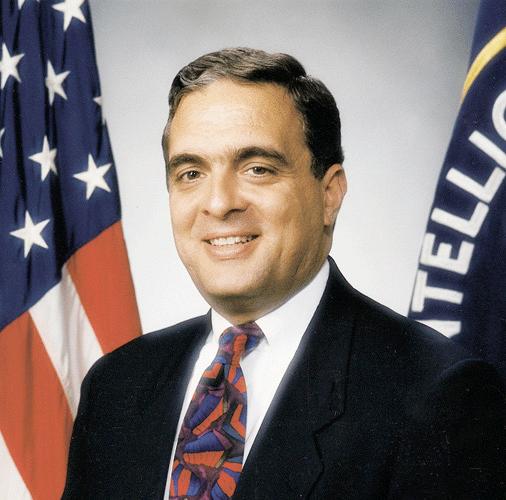
George Tenet, American intelligence official, academic and director of Central Intelligence for the United States Central Intelligence Agency:
“If a liberal arts education at a superior liberal arts college like Ripon places anything at all into a student’s hands, lodges anything in his or her mind, it’s an ability to make sense — to understand something, to put it in its context, to be able to give a coherent account of it so that others might understand, and perhaps act, on that account. …”
“We are at an important moment when people are questioning the importance of liberal arts education. What is the sense – they say – of training young men and women if they cannot find a job? To all the specialists who chant ‘we got jobs,’ Zach and I would say, yes, but the men and women of Ripon College have futures.”
At the inauguration of Zach Messitte as 13th president of Ripon College, Sept. 29, 2012.
Al Jarreau ’62, singer and winner of numerous Grammy Awards:
“Ripon College is a part of me. I just love that place. I have dreams about Ripon College several times a year.”

Spencer Tracy ’24, actor in 75 films and winner of multiple Best Actor Academy Awards:
“I owe whatever success I have had to the help and success I got at Ripon.”

Roderick Esquivel ’49, medical doctor and educator, former vice president of the Republic of Panama:
“Whatever I think or whatever I do in the field of medicine or in the field of politics, Ripon College and its very special educational system come forth in my behavior almost as automatically as a conditioned reflex.”
Harold Shapiro, economist, university administrator and professor at Princeton University:
“The liberal arts are at the heart of American higher education, and engagement with the liberal arts is the surest path to a thoughtful and informed citizenship.”
AT RIPON COLLEGE
COMMENCEMENT 2011.

Herman Boone, coach:
“Your education here at Ripon certifies you and qualifies you to make a difference.”
At Martin Luther King Day celebration 2012.



Brad Alberts ’92, presidents of the Dallas Stars Hockey Club:
“The education I received at Ripon taught me how to think, how to write, how to communicate. I think those things are the most beneficial to my career. They are actually very underrated traits for successful business, in my opinion.”

“We should call the liberal arts the pivotal arts. We provide a foundation that allows people to do all sorts of things.”
AT RIPON COLLEGE COMMENCEMENT 2015.

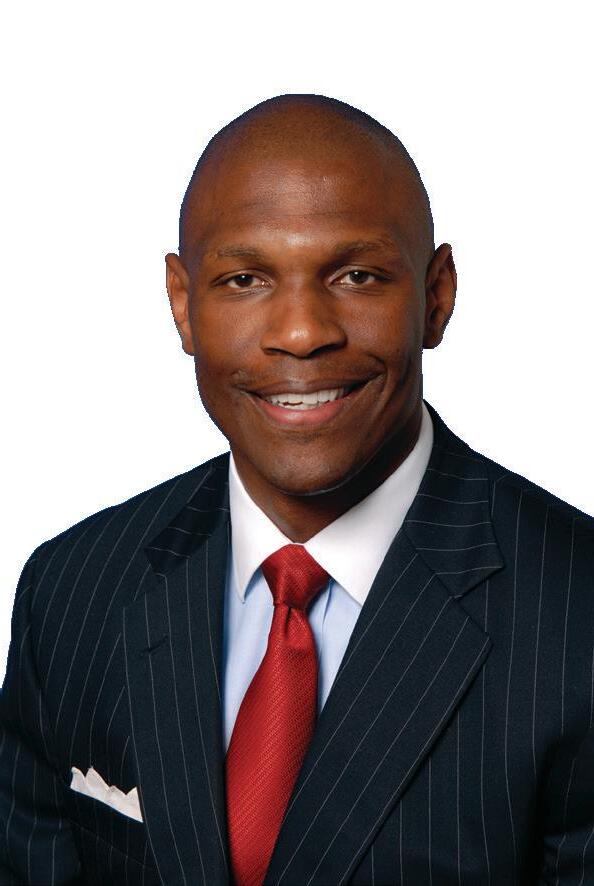
“Ripon was never just about a set of information that you memorized. We were taught to be resilient. … I can truly trace all of (my success) back to Ripon. I am so grateful to Ripon for their scholarships, the professors and the camaraderie.
“It’s the generosity of strangers: the kindness of local, national and international philanthropists and organizations with their scholarships, fellowships and encouragement for me to pursue my education and career when I otherwise might not have, given my socio-economic background. To them, I am forever grateful, and my goal is to pass it on.”

Gaylord Nelson, former Wisconsin governor and senator, who founded Earth Day in 1970:
“Your efforts to emphasize the ‘Environment’ are very gratifying, for the future welfare of our country is directly related to this critical issue.”
AT RIPON COLLEGE COMMENCEMENT 1971, WHEN THE THEME WAS “ENVIRONMENT.”
Mark Porubcansky ’77, foreign correspondent, Los Angeles Times editor:
“My experience writing papers at Ripon has helped. You learn how to construct an argument, logically, consider holes and counterpoints. I would urge students now to think big. Just because you come from rural Wisconsin doesn’t mean you can’t see the rest of the world.”
Marc Edwards, civil engineering/environmental engineer who helped lead investigations into highprofile drinking water crises in Washington, D.C., and Flint, Michigan:
“Living up to Ripon’s model (of a life well lived) has never been more important. The fate of humankind depends on it.”

Jacob Sumner ’01, head of the United Kingdom’s chain of Chipotle Mexican Grill restaurants:
“I fell in love with Ripon and never looked back. I loved sitting in the front of all my classes and really learning how to become a stronger student. Ripon helped me develop and refine important interpersonal skills.”

Kent Timm ’81, doctor of physical therapy, three-time Olympian and sports physical therapist or athletic trainer for professional teams:
“The liberal arts and sciences experience at Ripon College is the foundation of my success. Without the diversity of thoughts and being well-rounded in a variety of different areas, I would not have been able to do the things I have.”
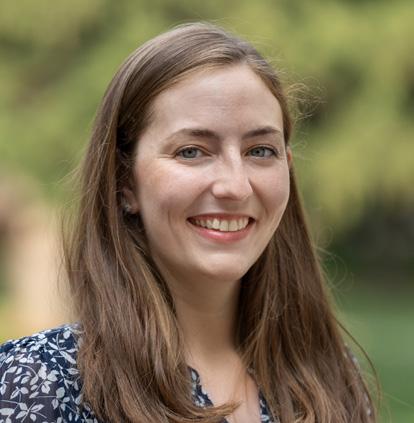

Lucy Burgchardt ’10, assistant professor of communication studies, Augustana College, winner of the coveted 2010 Gates Cambridge Fellowship in 2010:
“I think there’s something very special about the extra attention that students receive at a place like Ripon. I was encouraged to apply for archaeological field school in southern Peru, to study abroad in France, and to apply for the Gates Cambridge Fellowship. After pursuing all of those experiences, my world opened up in ways I never could have imagined. While I loved my friends and the Ripon community, the faculty and their dedication to Ripon’s students were the most important elements of my college career.”
Merline Thoma Lovelace ’68, Air Force colonel, best-selling novelist:
“The education and training I got at Ripon College trained me for both of my careers. Because I came from a liberal arts background, it allowed me to have a broader perspective on things.

“ I ’ m very grateful for the education and people here at Ripon that opened my mind to a lot of avenues I might not have explored otherwise.”
“A liberal arts education is very valuable in that it exposes you to a lot of different disciplines. It makes you a well-rounded individual. It aided me with the development of my critical thinking.”
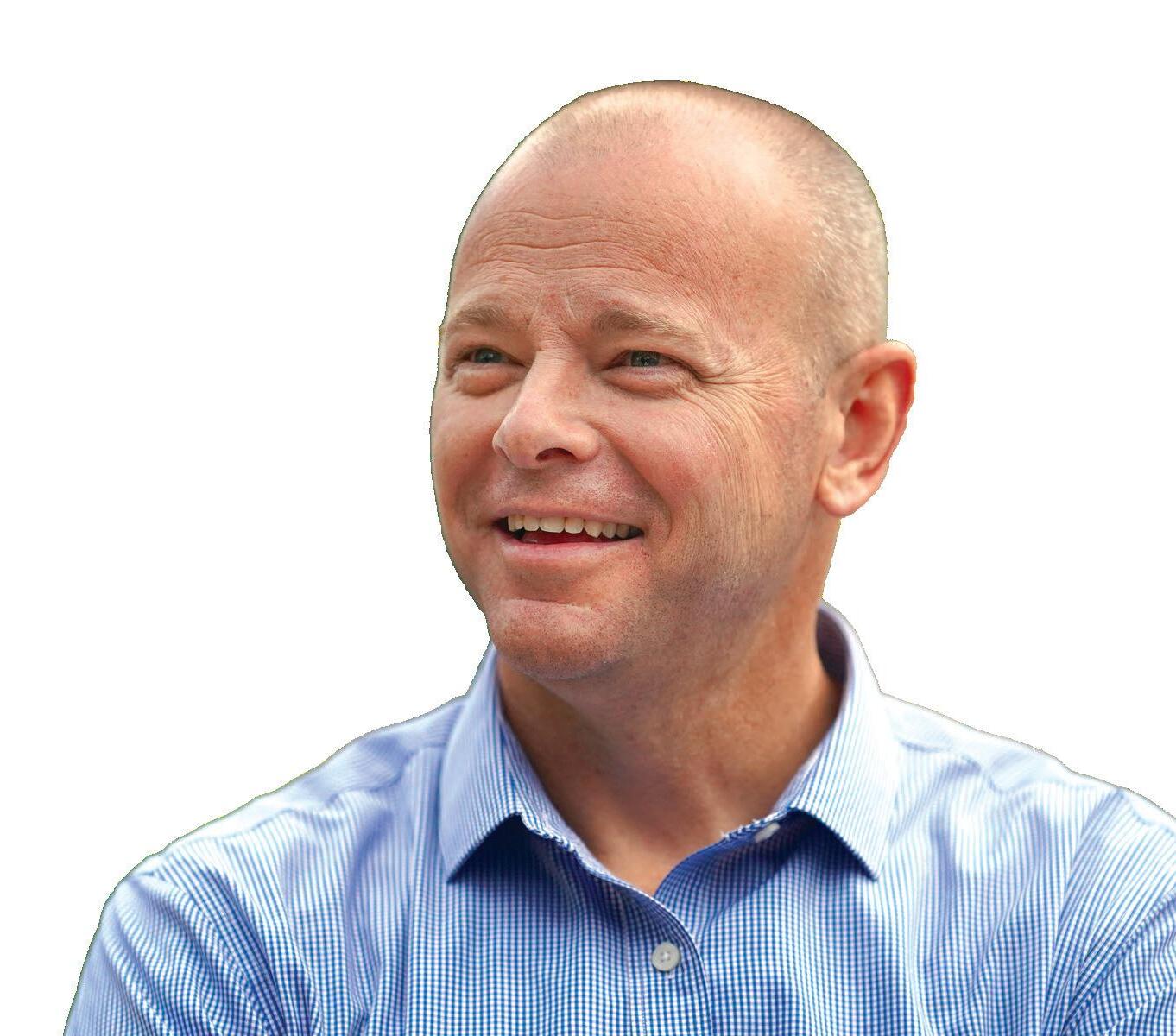
Lt. Col. James Megellas ’42, one of the most decorated soldiers of the 82 nd Airborne during World War II:
“What we did get and take with us from Ripon — you’ve heard the phrase ‘man is a product of his environment.’ We were a product of this environment, of a small-town school where students were close, worked together and created a bond, respected each other, a faculty that was caring that you could go to at any time and they would help you. … It was that environment that made us into the soldiers that we were.”


“The quality of instruction and the support that I got at Ripon was invaluable for the next steps of my performing career. I was especially grateful for the help and training I got when I went on to Juilliard for my master’s degree. I would never have gotten the kind of individual attention at a larger school, at a university or conservatory. I would not have gotten both the wellrounded education and the individual instruction needed to make me stand out in the competitive world of opera or to allow me to pursue my (later) career in social work.”
Justin
“College influenced my life significantly. It’s having a balanced approach to things that I do. A liberal arts background gives me something to draw from. It opened my mind. It’s such a thoughtful environment — the concept of learning to learn.”

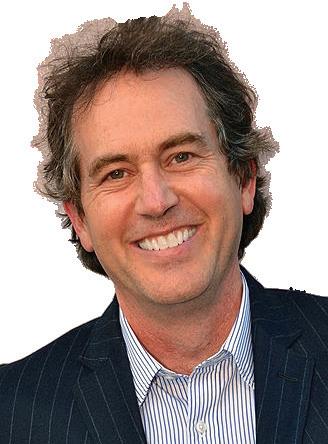
Jonathan Muraskas ’78, leading specialist in neonatal-perinatal medicine:
“That is what made Ripon so unique. You can get lost in a big university. The key thing for me was that you are not a number: the classes are small, they take a real interest in you.
“My career was shaped by Ripon College. This atmosphere when I was in Ripon … laid the foundation for me to achieve something in life. I’m so proud to say I’m part of Ripon. They’re like family to me, and that is why this school has become so close to my heart.”
Dick
In addition to sports, “I got to sample the real liberal arts strength of the College. It opened my eyes to a whole other kind of education, and that has stayed with me.”

“I will always be grateful for how I was challenged, pushed and required to go beyond the norm.”

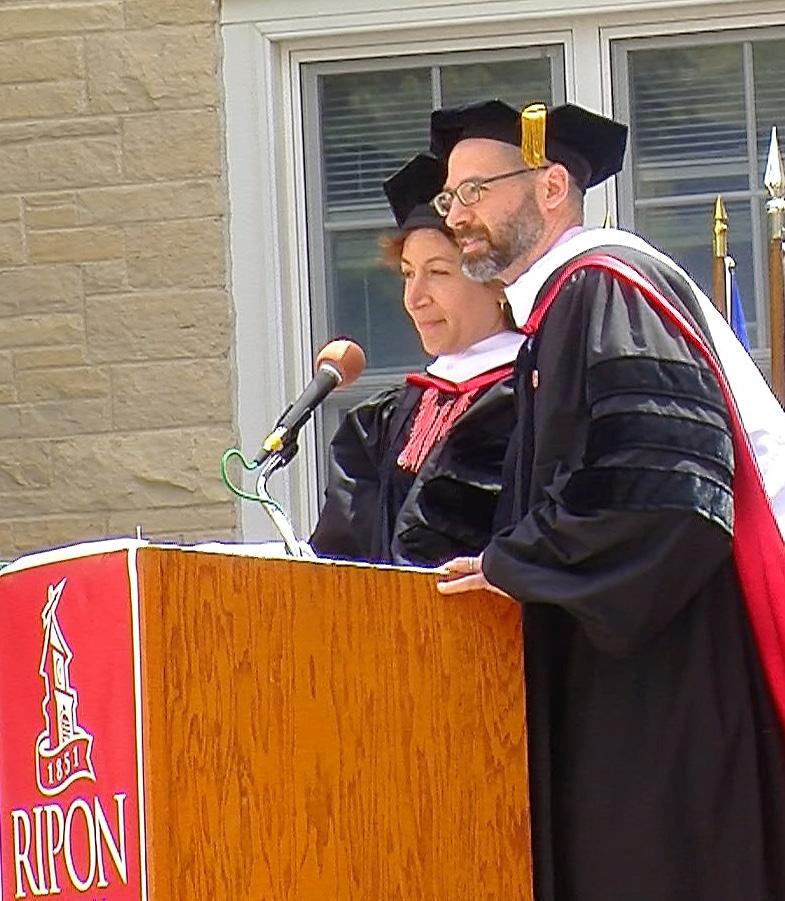
“The measure of a community is how it treats its strangers. Nearly everyone we met at Ripon was warm, welcoming, curious and engaged — the ideal environment for learning.”
AT RIPON COLLEGE COMMENCEMENT 2014.

Tom Horvath ’84, NASA aerospace engineer:
“My experience at Ripon College first and foremost taught me to believe in myself — even through difficult times. … I surrounded myself with people who took the time to help me. I think if I had gone to a bigger university, I would have been lost. (At NASA), everyone else had an aeronautical background. I did not have that, but I understood the language of science. Ripon College gave me a real good background.”

Richard Threlkeld ’59, Emmy Award winner and far-ranging news correspondent who worked for both CBS and ABC News:
“You have to have a framework of things before you can report. It’s so nice to have been to a college like Ripon where you have the opportunity to get a background in history, political science, economics and other areas. Ripon was a remarkable learning and preparatory experience.”

Robert Needham ’86, Counsel General with the State Department in Milan, Italy:
Ripon “provided me with a well-rounded education which gave me the ability to see things from more than one point of view. The capacity to keep an open mind has been extremely important to me in this career and in life away from the workplace. I did not appreciate this while I was at Ripon, but this has been a real asset.”

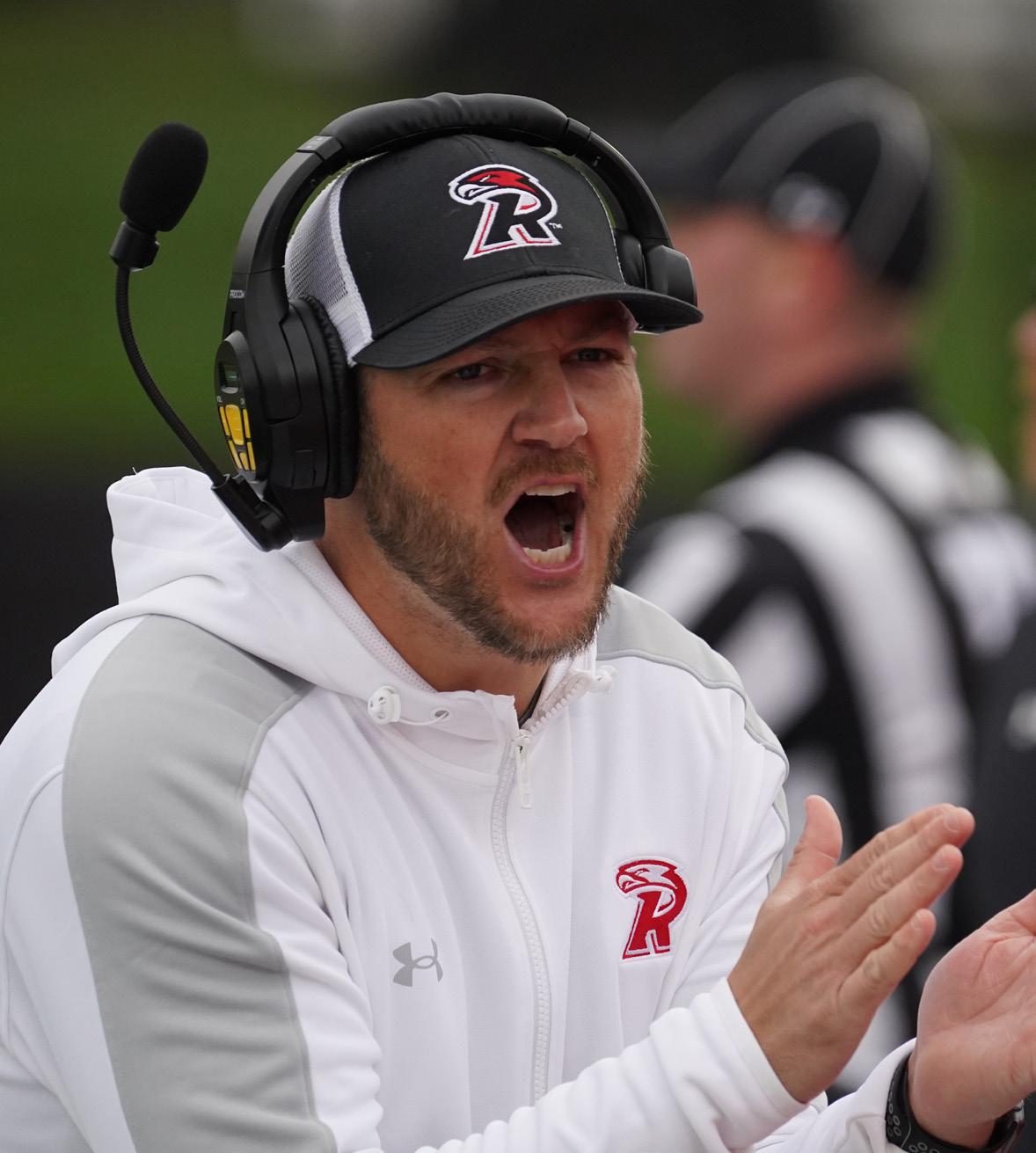


Not often must a Division III athletic department replace three head coaches in a single school year.
That was the situation in which Ripon College found itself while preparing for the 2023-24 school year.
Ron Ernst retired last year after 32 seasons as head football coach. In January, Ryan Kane stepped down as director of athletics and head basketball coach to become the new athletic director at Carthage College. Last summer, Steve Burns retired after three seasons leading the men’s and women’s tennis programs.
Jake Marshall ’10 took over as head football coach in January after six seasons as an assistant and offensive coordinator under Ernst. After graduation, the Valders native worked at Coe College and Beloit College before returning to Ripon. “It was an easy choice to come back (in 2016) because it had always been a goal to take over here and at some point try to break all his (Ernst’s) records,” Marshall said with a smile.
Marshall knows the responsibility of being a head coach at his alma mater. “The buck stops with you with everything,” he said. “If Mike
(Schmitt) needs something with special teams, he’s coming to me. If Mike (Hepp) needs something with the defense, he’s coming to me. Same thing with our players. Ultimately, there are so many more day-to-day things that add up to being a head football coach.”
In April, Ripon hired Kenny Finco as the head men’s basketball coach. A graduate of Arrowhead High School in Hartland, Wisconsin, Finco came from the University of Wisconsin-La Crosse where he was the top assistant for the Eagles. He helped lead La Crosse to 99 wins and a pair of NCAA Tournament berths.
“When this opportunity came up, it was a no-brainer for me,” Finco noted. “We had played against Ripon every year I was at La Crosse, so I knew the facility and I knew there were really successful coaches and athletic teams that had been here before.”
His fiancée, Jen Dimos, has been the head women’s soccer coach at Ripon since 2022 — another pull to becoming a Red Hawk. “When we both were at La Crosse, Jen texted me one day and asked if I knew anything about Ripon. I told her it was a really good spot. She said Ryan (Kane) wanted her to apply for the women’s soccer job. … She

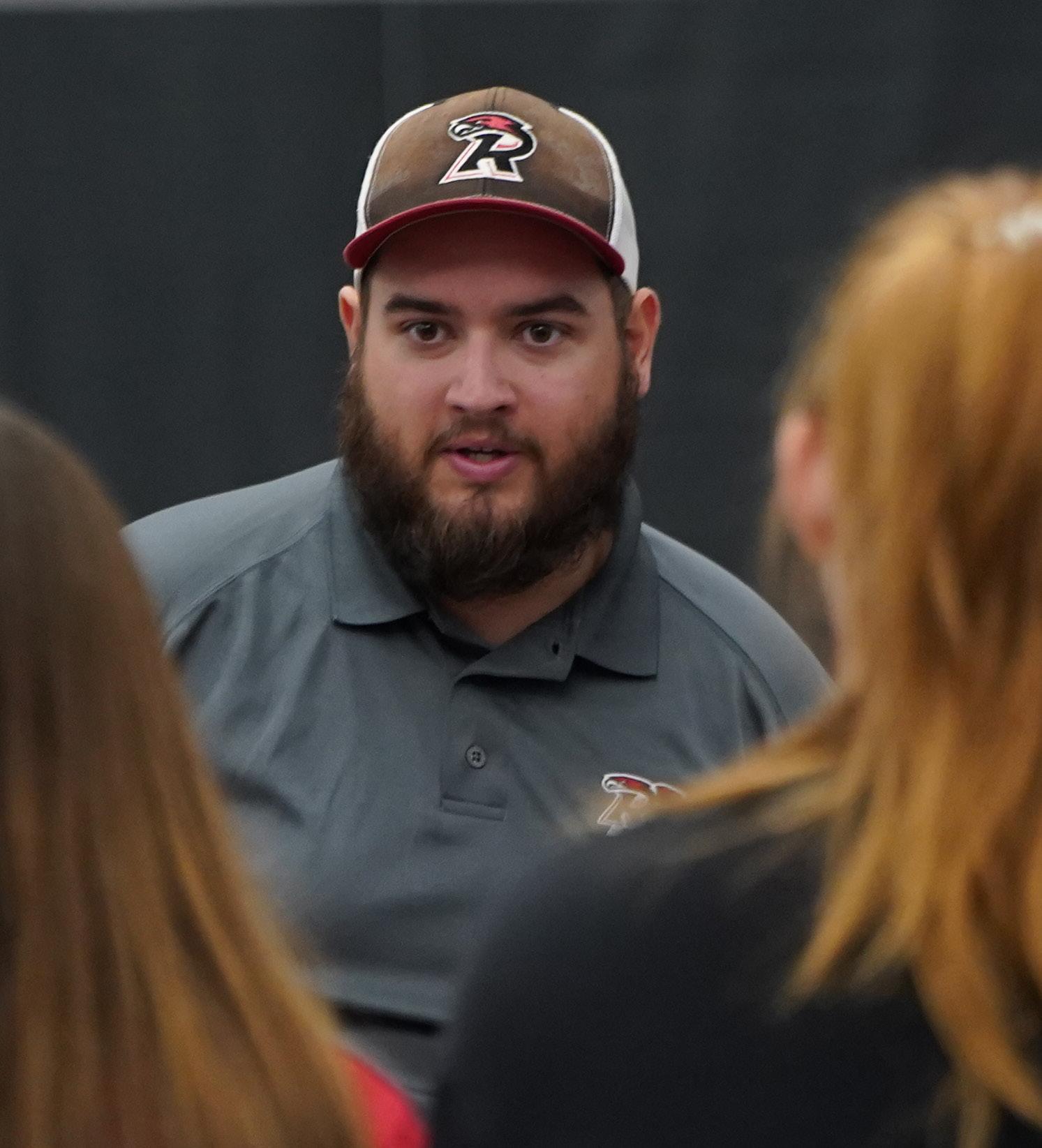
CROSS COUNTRY
Both the men’s and women’s teams placed third at the 2023 Midwest Conference (MWC) Championships. Men’s cross country won the Gene Davis Invite for the first time in program history, while Sam Forstner ’23 of Wisconsin Rapids, Wisconsin, won races at the Tom Barry Invitational and Gene Davis Invite. For the first time in school history, six Red Hawks men were named All-Midwest Conference athletes: Forstner (individual runner-up), Christian Kuwaye ’25 of Kaneohe, Hawaii, Rainier Villanueva ’25 of La Mirada, California, Matt Seeber ’25 of Lakewood, Wisconsin, Adrian Baquera ’25 of Round Lake Beach, Illinois, and Dylan Bledsoe ’27 of Pinckneyville, Illinois. On the women’s side, Mikayla Flyte ’23 of Coloma, Wisconsin, became the first Red Hawks woman since 2012 and the fourth in school history to qualify for the NCAA Championships. She took 172nd place among 292 competitors at nationals. Named All-Midwest Conference were Flyte, Alison Denamur ’25 of Elcho, Wisconsin (individual runner-up), Jenny Cortes ’26 of Round Lake Beach, Illinois, and Gabby Allard ’27 of Appleton, Wisconsin. The team also took first at the Gene Davis Invite – their second consecutive title at the event hosted by Lawrence University.
FOOTBALL In Jake Marshall’s first season, the Red Hawks went 5-5 overall and 5-4 in MWC action. The team won their first game in the new Hopp Stadium 12-0 over previously undefeated Lake Forest College Oct. 21. Ripon won four of its last six games and defeated rival Lawrence 55-34 on Nov. 11 for its 22nd consecutive victory over the Vikings. Named secondteam All Midwest Conference performers: Kyle Olson ’23 of Oak Creek, Wisconsin, (offensive line), Alex Mosqueda ’25 of Yuma, Arizona (wide receiver) and Jake Davies ’26 of Brandon, Wisconsin (defensive back).
was fortunate enough to get the job, and with us both being coaches, the goal was to get to the same spot. It worked out nicely that the basketball position opened up here.
“We’re both super-excited to be here,” he says. “It’s a really good spot so we’re excited about it.”
In August, Sam Brickley was announced as the head men’s and women’s tennis coach. A 2021 graduate of Loras College, Brickley most recently was the assistant coach at his alma mater after a playing career with the Duhawks.
“I played against Ripon a couple of times when I was at Loras,” Brickley noted. “I’m from Galesburg, Illinois, where Knox College is, so I was familiar with the Midwest Conference. I knew Ripon, I knew some of the history, the facilities, the location. It’s definitely a good area and I had a level of familiarity with it compared to other schools.”
Brickley, too, has noticed a difference between being the head of a program and an assistant. “When I was an assistant, I was given a couple of players to work with, whereas now being a head coach, I have to manage all players for both teams,” he said.
Each of the new head coaches took a very different path to get to Ripon, but each is looking to make his mark and leave a legacy here — forging a path to greatness on and off the field like those before them.
BROCK REISLER Director of Athletic CommunicationMEN’S SOCCER The team went 6-4-7 overall and 1-3-4 in MWC play. The Red Hawks gave up only 18 goals all season, the fewest since 2000. Ripon also had the best defensive record in the league. Jacob Oppeneer ’24 of Waldo, Wisconsin, was named to the second-team All Midwest Conference squad. His eight goals in 2023 are tied for the 10thmost single-season goals in program history.
WOMEN’S SOCCER The team went 8-6-3 overall and 2-5-1 in MWC play for their most wins in a season since 2017. Their nine shutouts set a new school record for single-season shutouts. The Red Hawks gave up only 13 goals all season, tying a school record with the 1997 team. Andreanna Wilke ’25 of Wausau, Wisconsin, was named second-team All-Midwest Conference after totaling 118 saves in 2023. She is in second place in school history for career saves with 486. She also tied a school record in 2023 with seven complete-game shutouts in a single season.
WOMEN’S TENNIS The team went 1-10 overall and 0-6 in MWC play. Kelly Kline ’25 of Ripon, Wisconsin, and Emma Ziebell ’25 of Milwaukee, Wisconsin, won the consolation championship at the #3 doubles spot at the MWC Individual Championships in mid-October. The Red Hawks will continue to play non-conference matches in the spring.
VOLLEYBALL Playing a difficult non-conference schedule and hosting a pair of non-conference tournaments, Ripon volleyball went 10-19 overall and 3-5 in MWC action, with a five-match winning streak in early September. Lydia Ellis ’23 of Dorr, Michigan, was named a second-team All MWC performer after leading Ripon with 254 points, 2.76 points per set and 2.35 kills per set. She was also second on the team with 216 total kills.





• Elizabeth Flanigan ’94 of Westford, Massachusetts, service to community, career achievements

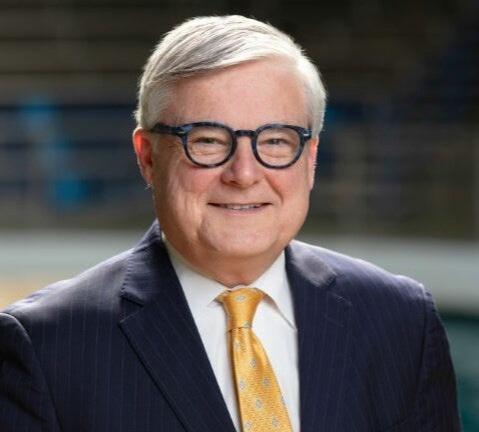
A new species of snake was discovered in Peru and is named after Indiana Jones actor Harrison Ford ’64.
The naming of Tachymenoides harrisonfordi was light-hearted, because of Ford’s portrayal of a character with a notorious dislike of snakes; and also serious, because of Ford’s work as an environmental activist.
Ford told Sky News the honor is “humbling.” He said, “It’s a reminder that there’s still so much to learn about our wild world, and that humans are one small part of an impossibly vast biosphere.”
Previously, two other newly discovered species have been named for Ford: the spider Calponia harrisonfordi in 1993 and the ant Pheidole harrisonfordi in 2002.
1 2 3 4
Alumni award recipients announced for 2024
The Alumni Association Board of Directors have selected these award recipients for 2024:
distinguished alumni citation
• George Boothby ’74 of Montvale, New Jersey, service to community, service to Ripon College
• Todd Keil ’84 of McKinney, Texas, career achievements, service to community
• Gary Yerkey ’66 of Washington, D.C., career achievements, service to community
outstanding young alumni award
• Ariana Myers ’14 of Milwaukee, Wisconsin, service to community
• Nicole Zeman Stangl ’17 of Wausau, Wisconsin, service to community, career achievements
athletic hall of fame
• Mark Baladad ’88 of Chicago, Illinois, and Zsolt T. Juhasz ’88 of Wheaton, Illinois, tennis
• David P. Bienfang ’67 of Fort Atkinson, Wisconsin, baseball, basketball
• Jennifer Mueller Wachtel ’07 of Sobieski, Wisconsin, softball
• Cory T. Zimmerman ’13 of Marsh, Wisconsin, cross country, track and field Awards will be presented during Alumni Weekend at the 1851 Awards Dinner on Friday, June 21. The full schedule and registration details for Alumni Weekend will be shared in the spring.
Theatre company lists scripts by Anne
Negri Lewinthal ’03Plays for New Audiences (PNA), the script-licensing division for the Tony Award-winning Children’s Theatre Company, has announced the availability of five new titles by acclaimed playwright Anne Negri Lewinthal ’03. Negri is a K-8 drama specialist in the Evanston/ Skokie District 65 public schools of Illinois. She earned her bachelor’s degree in theatre, French and educational studies from Ripon and was awarded an honorary degree from the College in 2022.
It’s a small world for Ripon College alumni
Ryan Patnode ’97 of Keller, Texas, shares: “Random night in Keller, Texas — Keller is between Dallas/Fort Worth International Airport and Fort Worth proper. I am at my local sports bar on a random Tuesday or Wednesday night (shocker, right?!), and I swear I see Ryan Johnson (’97 of Excelsior, Minnesota) walk in. “He sits with another guy at the other end of the bar. I ask my bartender friend to send him a drink and ask him if his name is RJ. A few glances and seconds later, we reconnect after multiple years! ‘Hey RJ, why are you in Keller, Texas?’ It turns out that his wife’s brother lives in Keller, and they were having a family gathering.”


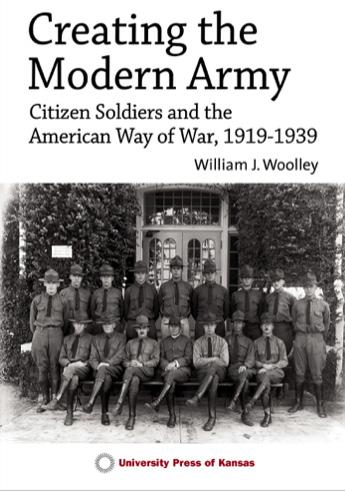


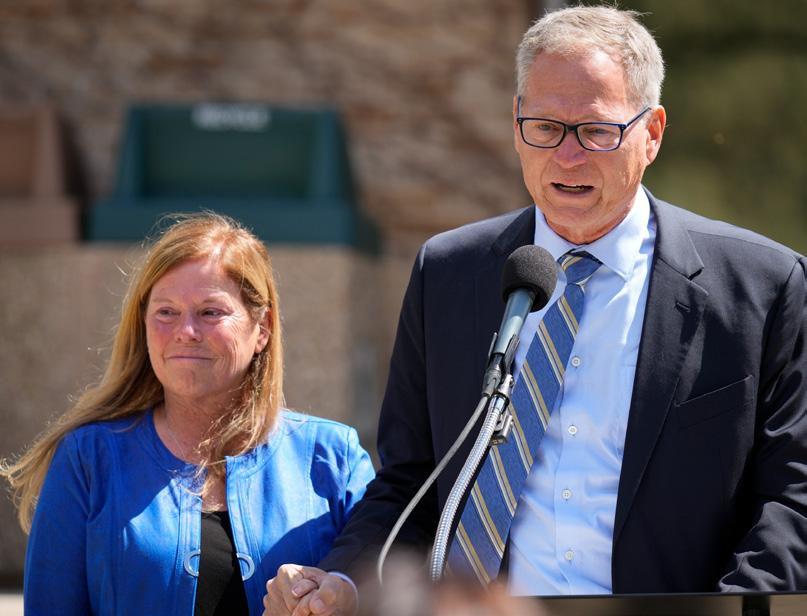
For the first time since 2017, Ripon’s Ethics Bowl team qualified to compete at the National Ethics Bowl Competition. The team placed fifth at the Upper Midwest Regional Ethics Bowl Competition Nov. 11, 2023, at the University of Chicago. At the national competition, held Feb. 25-26 in Cincinnati, Ohio, the team won one preliminary round and lost three close rounds, ranking 26th out of 36 teams. Team members, pictured from left, are: Jake Hargrave ’25, Markesan, Wisconsin; Lili Alderson ’24, Ripon, Wisconsin; Sidney McNatt ’26, Vista, California; Zoe Stephanie ’27, Comstock, Wisconsin; Emily Karvala ’24, Iron Ridge, Wisconsin; and Cally Stannard ’24, Hartland, Wisconsin. The coach is Paul Jeffries, associate professor of philosophy.
This event was held in conjunction with the Association for Practical and Professional Ethics’ annual international conference.
Steve Coan named new vice president for finance
Steve Coan has been named the new vice president for finance and is responsible for finances, business affairs, human resources and information technology.
Coan served as a senior officer of Sea Research Foundation for more than 20 years, including 16 as president and CEO.
Erika Doss ’78 of Richardson, Texas, retired from the University of Notre Dame in May 2023 and is now endowed chair in the Edith O’Donnell Institute of Art History at the University of Texas at Dallas.
Her latest book, Spiritual Moderns: Twentieth Century American Artists and Religion, was published by the University of Chicago Press in 2023. It is available on amazon.com.
William J. Woolley book wins national ‘distinguished’ award
Creating the Modern Army: Citizen Soldiers and the American Way of War, 1919-1939, a book by Professor Emeritus of History William J. Woolley, has been selected by The Army Historical Foundation as the winner of the 2022 Army Foundation Distinguished Writing Award for Institutional/Functional History.
The book was published in 2022 by the University Press of Kansas. In the book, Woolley says the modern U. S. Army as we know it was largely created in the years between the two world wars. The book details the creation of the main elements of that Army as well as the introduction of mechanized warfare. Woolley retired from Ripon in 2001.
Jacqueline Clark, professor of sociology and Helen Swift Neilson Professor of Cultural Studies; Kaeley Miller ’24 of Norway, Michigan; and Alison DeNamur ’25 of Elcho, Wisconsin, attended the Wisconsin Sociological Association’s (WSA) annual meeting.
Both students presented posters based on their projects from the Summer Opportunities for Advanced Research program in 2023. They also submitted papers in an undergraduate competition. DeNamur placed first and Miller placed third.
Mark Franzen ’83 new chair of Ripon Board of Trustees
Mark Franzen ’83 of Paradise Valley, Arizona, and Green Lake, Wisconsin, is the new chair of the Ripon College Board of Trustees. Since joining the board in 2010, Franzen has held numerous leadership positions. With his wife, Janice Heinz Franzen ’83, he has supported numerous major initiatives at Ripon College, including the Franzen Center for Academic Success, the Franzen Student Research Fund, and the Franzen Professorship in Applied Mathematics. They are lead donors for the Franzen Science Center, which broke ground in April 2023 and is under way. photo: Janice Heinz Franzen ’83, left, and Mark Franzen ’83 speak at the groundbreaking for the Franzen Science Center in April 2023.


on the boards
Assistant Professor of Theatre Lillian Brown had several theatrical appearances in 2023. She performed her autobiographical one-woman show, “The Oreo Complex,” in Washington, D.C., with the NuSass theatre company. The show ran for 10 performances from May 20-June 3 and received a Helen Hayes Award recommendation. She also performed as the headliner for the St. Louis Fringe Festival. Brown also was cast as Regine in the play “Mud Row,” by Dominique Morriseau, which follows two generations of sisters in an area in the East End of West Chester, Pennsylvania. The play ran Aug 10-27 as a part of the Black Theatre Festival sponsored by Black Arts MKE.
From Nov. 25-Dec. 17, Brown appeared in “The Mousetrap” at Next Act Theatre in Milwaukee. Agatha Christie’s world-famous murder mystery has a thrilling twist ending and is the world’s longest-running play.
Stage photo courtesy of Michael Brosilow/Next Act Theatre
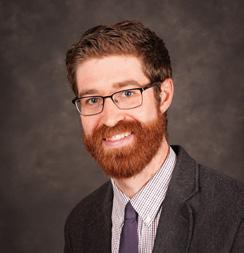
pieper chair
Nicholas Eastman, associate professor of educational studies, has been named the new Pieper Chair of Servant Leadership at Ripon College. He
also presented at the conference “Makarios: Character and Virtue in the Christian Tradition” in Rome, Italy, May 26-28, 2023.


music and art
Sarah Mahler Kraaz of Northampton, Massachusetts, professor emerita of music, has coedited a book, The Handbook of Music and Art, which has a scheduled publication date of April 2024. In addition to co-editing the book and writing some of the section introductions, Kraaz also contributed the chapter “Access and Engagement: Classical Music in the Pandemic and Beyond.”
Ripon College Professor of Art Travis Nygard contributed the chapter “Racist and Ethnic Stereotypes in the Arts.”


book on education
Associate Professor of Educational Studies
Matthew Knoester is the co-author of a new book. Learning to Cross Divides: Examining Critical Multicultural and Bilingual Schools was published by Routledge in July 2023.

quoted in article Associate professor of psychology Julia Meyers-Manor was quoted as an animal cognition researcher in a journal article. “Why Do Dogs Tilt Their Head to the Side?” was published in Scientific American in July 2023.

art exhibition, critiques Professor of Art Rafael Francisco Salas had a solo exhibition Sept. 6 through Nov. 17, 2023, at the University of Wisconsin-Parkside, in Kenosha. His work engaged themes of sexual identity, questions of belonging and place, and depictions of rural America, all haunted by the possibility or reality of violence. He also published articles in Urban Milwaukee and Newcity Art Chicago.

poems published Poems by Associate Professor of English Megan Gannon were published: “Dispatch from the Month Before Your Arrival” in Meridian and “Dispatch in the Form of a Prologue or Epilogue” in “Poet Lore.”
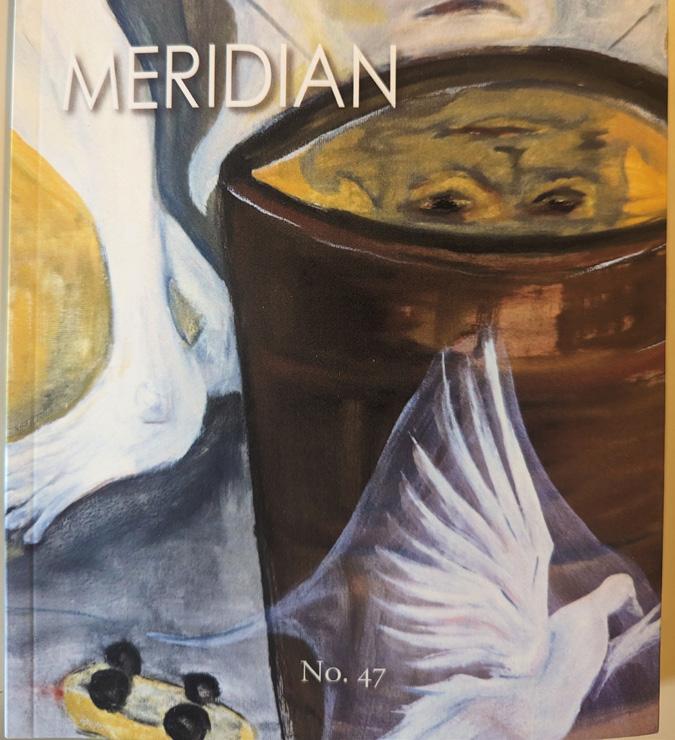



professor/student collaboration “Decrease in ERα within the BNST of sexually naïve male rats following an encounter with a novel female” has been accepted for publication in Behavioural Brain Research. The senior author is Associate Professor of Biology Robin Forbes-Lorman, left, with collaboration by Associate Professor of Psychology Julia Meyers-Manor, center, and first author Brianna Bembenek ’22, right, who did work for the project in Forbes-Lorman’s lab.


political science research
Henrik M. Schatzinger, professor of political science and director of the Center for Politics and the People, and Assistant Professor of Political Science Yuan Wang presented new research in separate sessions at the annual meeting of the American Political Science Association held Aug. 31 through Sept. 3, 2023, in Los Angeles. Schatzinger also was a guest on the Wisconsin Public Radio show “Central Time” Oct. 2, 2023, discussing the impending federal government shutdown.
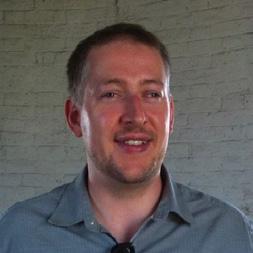
investigating investigators
His expertise on examination of paranormal investigations and investigators was shared by Associate Professor of Sociology Marc Eaton. He was interviewed twice in 2023, for Atlas Obscura Oct. 17 and on Wisconsin Public Radio Oct. 25. His research examines ghosts as a social phenomenon, the motives and methods of paranormal investigators, and the meanings that they derive from their participation.

online publication Ben Grady, associate professor of biology and director of environmental studies, is the co-author of a paper published by Phytoneuron. The article is titled “Revisiting taxonomic problems in capitate Eriogonum (Polygonaceae) from Idaho, Oregon, and Montana.”


an authorized biography of jazz/pop vocalist Al Jarreau ’62 was released in August 2023 by the Wisconsin Historical Society Press. The author of Never Givin’ Up: The Life and Music of Al Jarreau is Kurt Dietrich, professor emeritus of music. The book has remained among the bestsellers in “Jazz Biographies” on Amazon.com since its release. Dietrich has given presentations about the book around Wisconsin, done interviews for radio shows and appeared on Milwaukee Public Television’s “Black Nouveau.”
Jarreau is the only person in history to win Grammy Awards in three different categories: jazz, pop and R&B. He recorded more than two dozen albums over three decades and was renowned for his ability to sing many styles, including scat singing and taking on the character of guitar and percussion, all with his versatile and soulful voice.
He acted on Broadway in the hit musical “Grease” and appeared on the television programs “New York Undercover” and “Touched by an Angel.”
With both Jarreau and Dietrich
Never Givin’ Up: The Life and Music of Al Jarreau may be ordered from the Wisconsin Historical Society Press or amazon.com.
being closely affiliated with Ripon College, Dietrich had met Jarreau four times on Jarreau’s trips back to Ripon College and his native city of Milwaukee. The book includes a chapter on Jarreau’s time at Ripon College, including his participation in the vocal group The Indigos with which he and fellow Ripon College students performed around the region.
Jarreau majored in psychology at Ripon, and Dietrich says an interesting aspect of Jarreau’s career was that when he first moved to California he worked as a rehabilitation counselor for the state of California. He did musical performances on the side until his singing career took off.
Dietrich taught at Ripon for 39 years. He graduated from Lawrence University, received his master’s degree from Northwestern University and his doctorate from the University of Wisconsin-Madison. At Ripon, he directed the Symphonic Wind Ensemble and Jazz Ensemble, taught brass instruments and a variety of courses.
He also is the author of Wisconsin Riffs: Jazz Profiles from the Heartland (2018) and Duke’s ’Bones: Ellington’s Great Trombonists (1995).



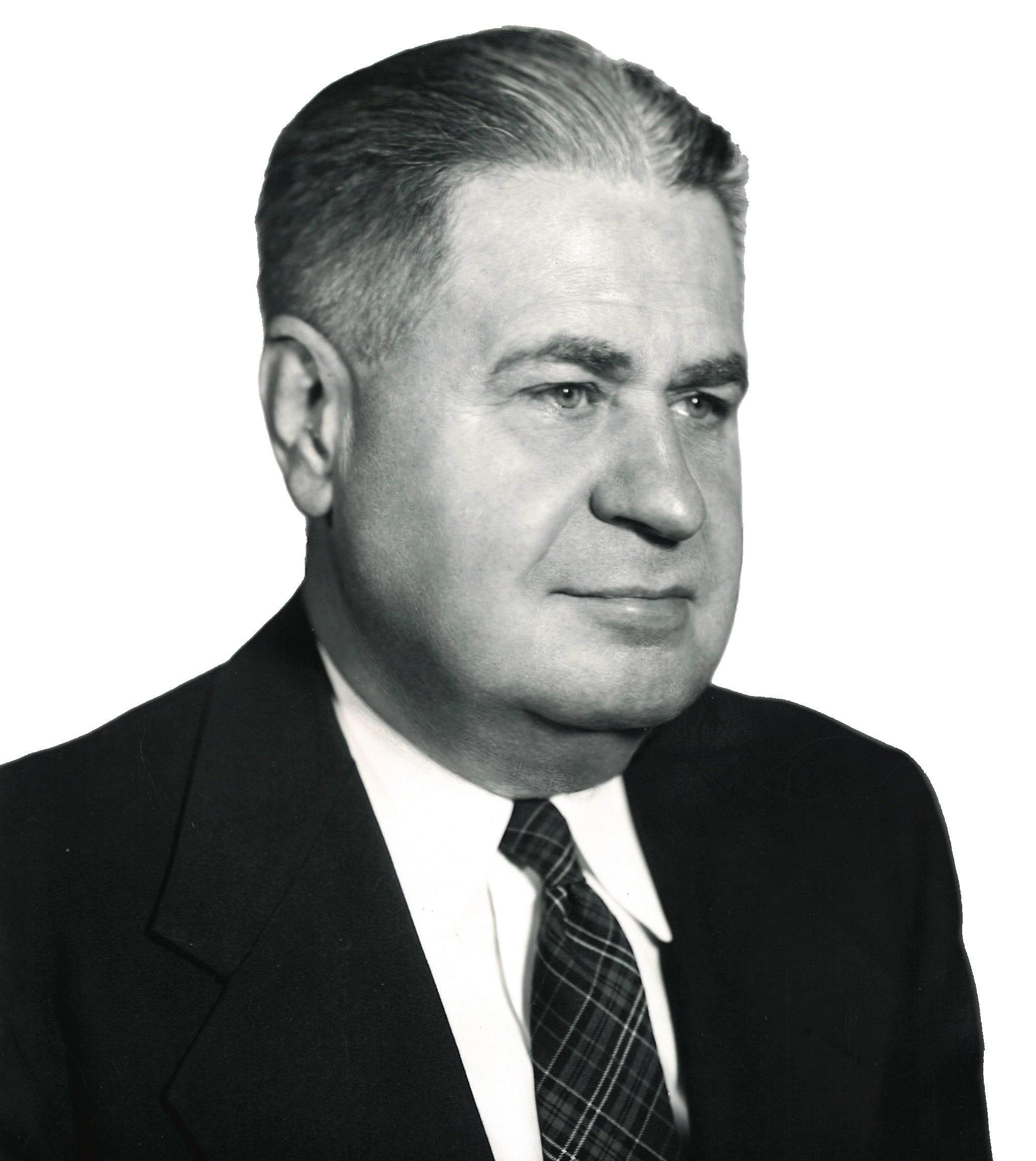
“Ripon gave me the conviction that there was no intellectual problem that I was not capable of solving — not a bad objective of the liberal arts college.”
Robert R. Riesz, Class of 1924
Robert R. Riesz had a distinguished career in industrial physics at Bell Telephone Laboratories, helping to develop and patenting the Bell 2A artificial larynx in 1929. He then passed on his passion through education.
He was born Feb. 9, 1903, in New York, New York. At Ripon, he majored in physics and mathematics, was a student fellow and student assistant in physics and an assistant in mathematics, and participated in Merriman, College Days and Crimson yearbook.
He earned a master’s degree in physics from the University of Wisconsin-Madison in 1925 and did graduate work in physics at Columbia University, New York, and the University of Michigan.
For more than 35 years, he was a member of the technical staff of Bell Laboratories, Murray Hill, New Jersey, and a licensed engineer, working in the field of acoustics and more particularly the study of the physical principles involved in human speech and hearing and the design of communications equipment.
From 1926 to 1962, he worked on vibratory mechanics and did research in the physics of speech and hearing. He developed an artificial larynx, which “restored the power of speech” to those who had had their larynx removed. He also researched visible speech to allow deaf people to “hear” by reading visible patterns produced by spoken words.
Prior to and during World War II, he worked on developing speech-processing systems such as the Voder and Vocoder, and later worked in human factors engineering as applied to communication systems. He held 22 U.S. patents and published numerous scientific papers.
In 1962, he retired from Bell Laboratories to become an associate professor of physics at Union College, a private liberal arts school in Barbourville, Kentucky, and the first college founded in the Kentucky mountains.
Riesz eventually became chairman of the mathematics and physics department. Although his salary was 75 percent less in this position, he relished the fact that “the other rewards have been great. To see a boy from the hills develop into what I think is a potential mathematical genius is something to behold. And I have seen it happen,” he wrote to Ripon.
He received Ripon’s Distinguished Alumni Citation in 1947. In 1968, he was elected to Phi Beta Kappa by the Ripon College chapter of the honorary scholastic society.
“Ripon gave me the conviction that there was no intellectual problem that I was not capable of solving — not a bad objective of the liberal arts college,” he said.
He died Dec. 10, 1974, at age 71.
JAYE ALDERSON College Editor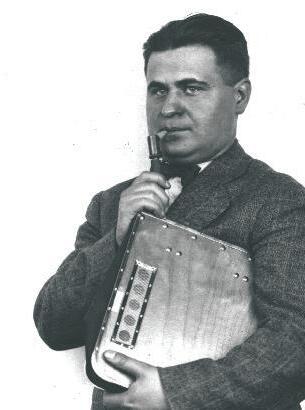

Commencement speaker John M. Bridgeland declared:
The mission of Ripon College is to prepare students for socially responsible citizenship. What a remarkable mission. Lives of service are in Ripon’s DNA.”
Bridgeland is a former director of the United States Domestic Policy Council and USA Freedom Corps, and former vice chairman of Malaria No More.